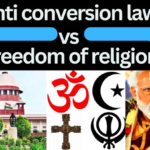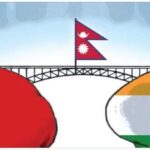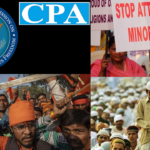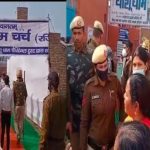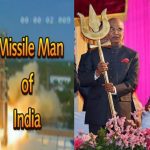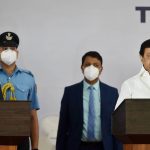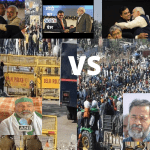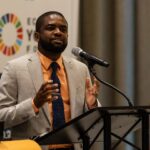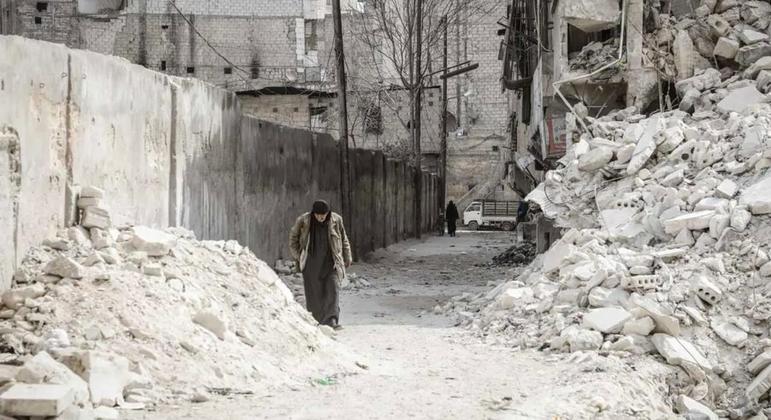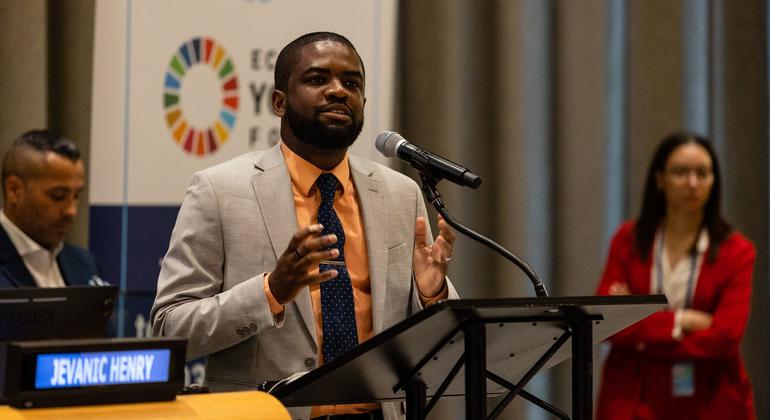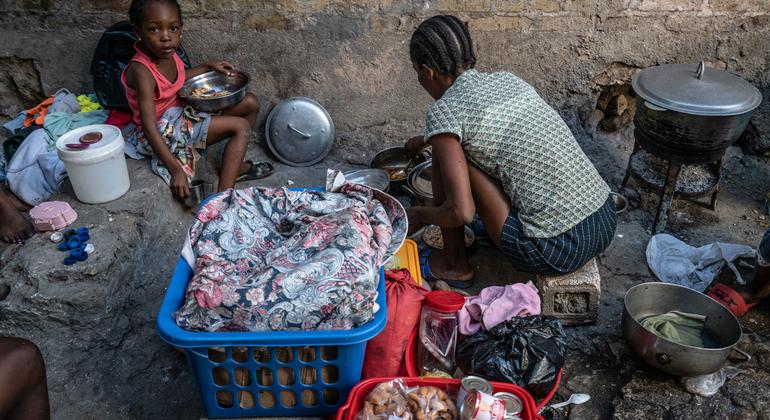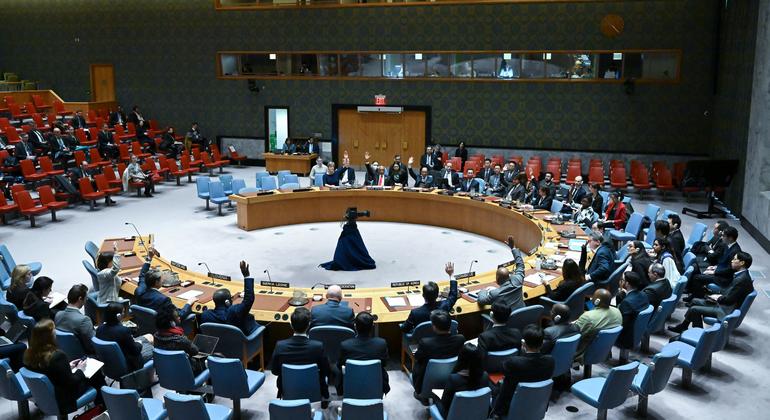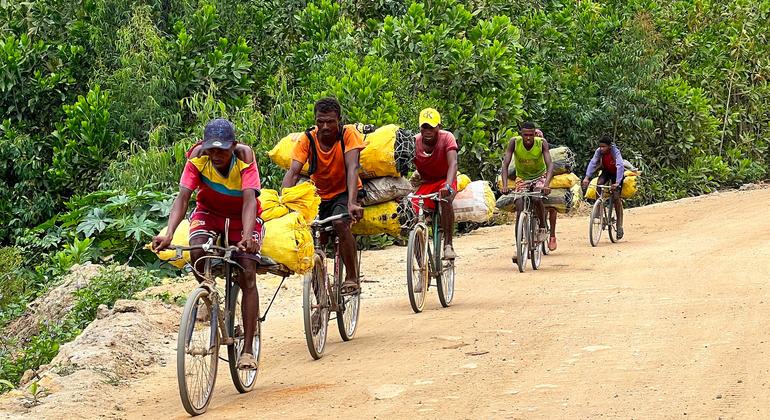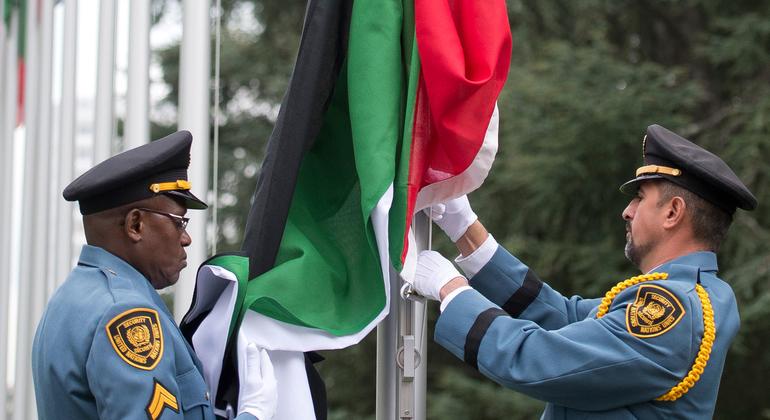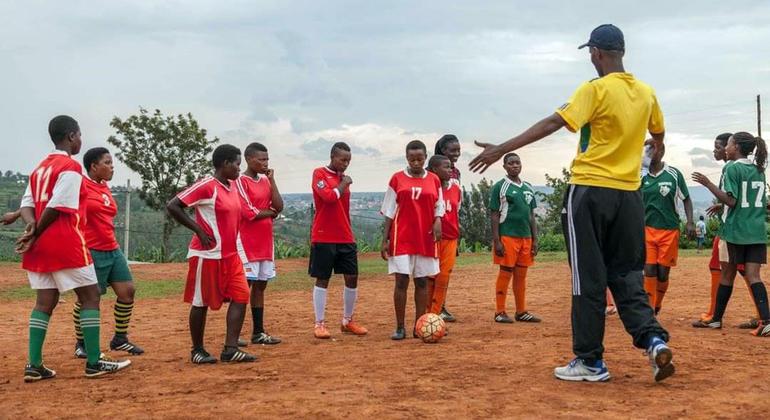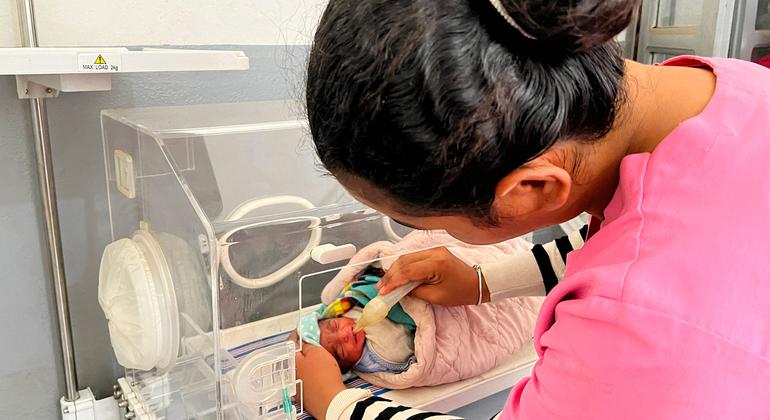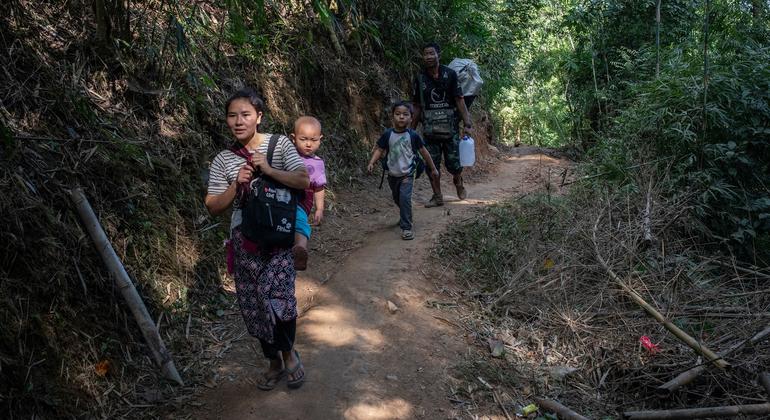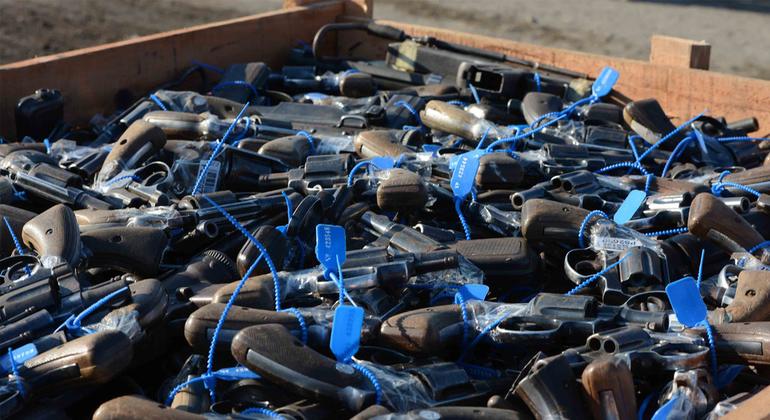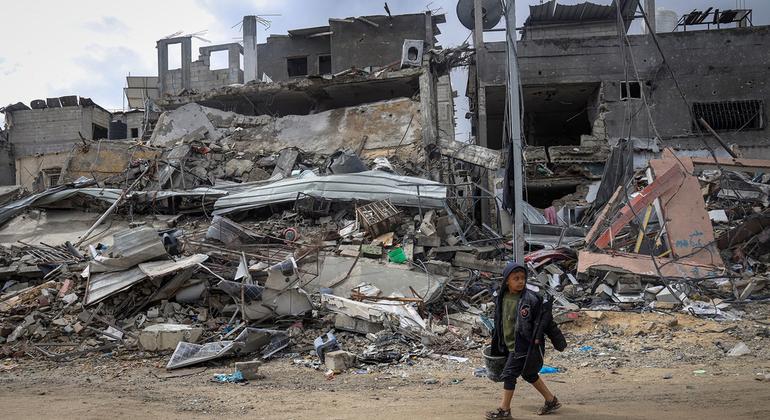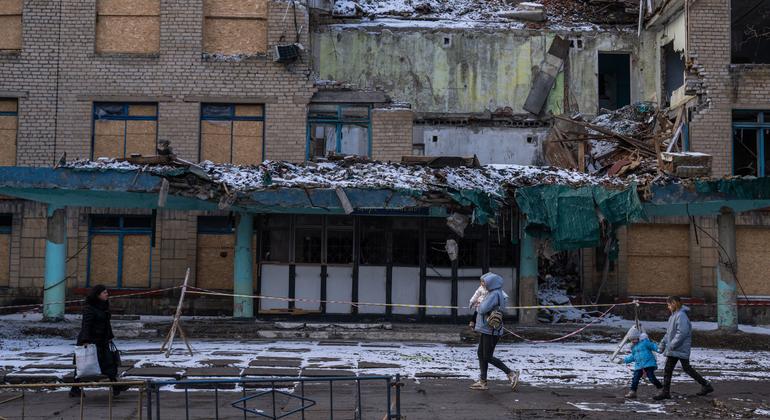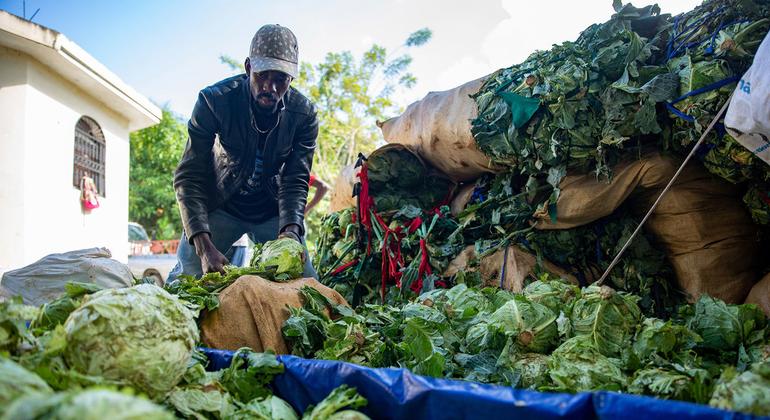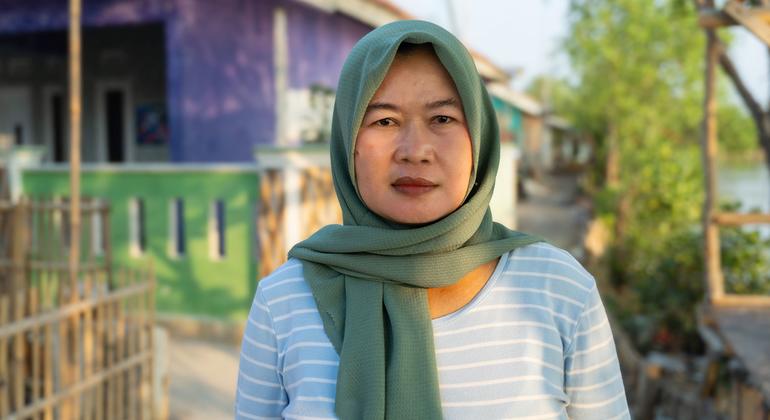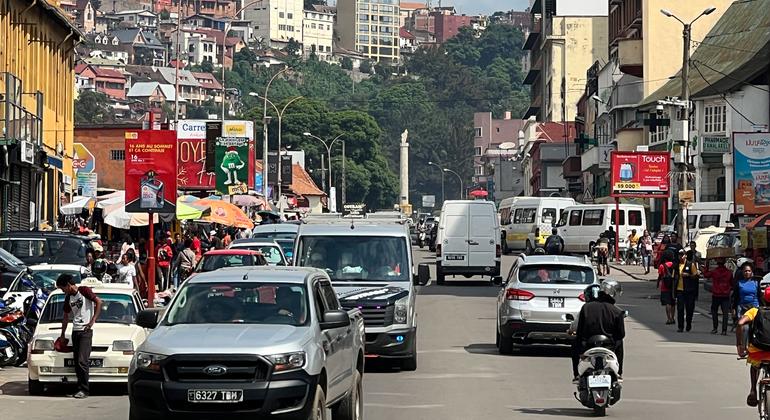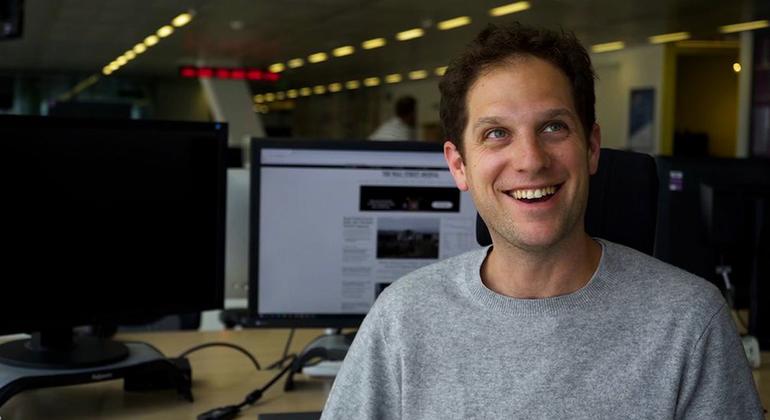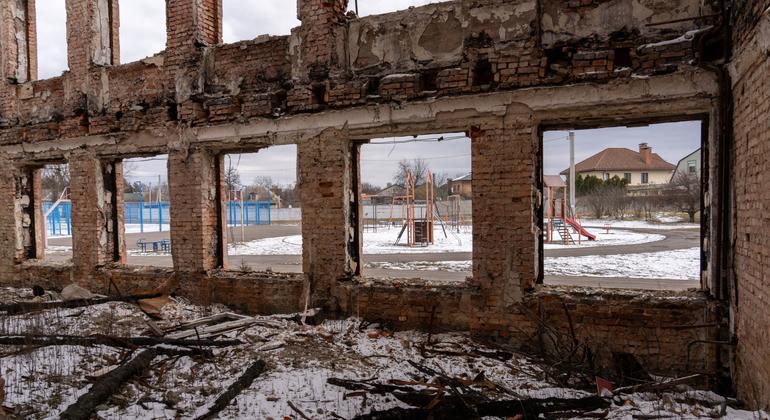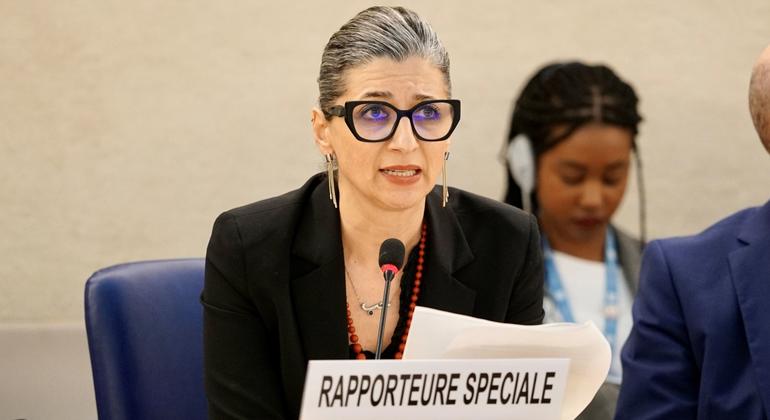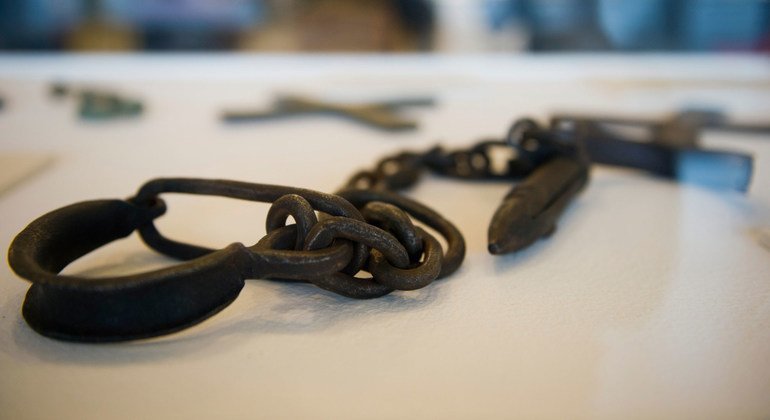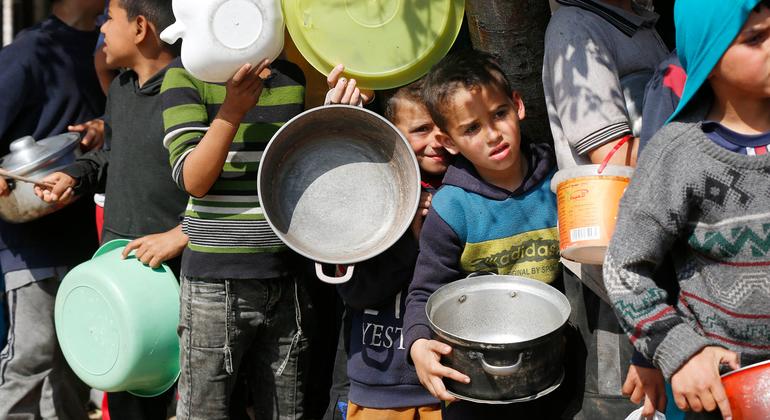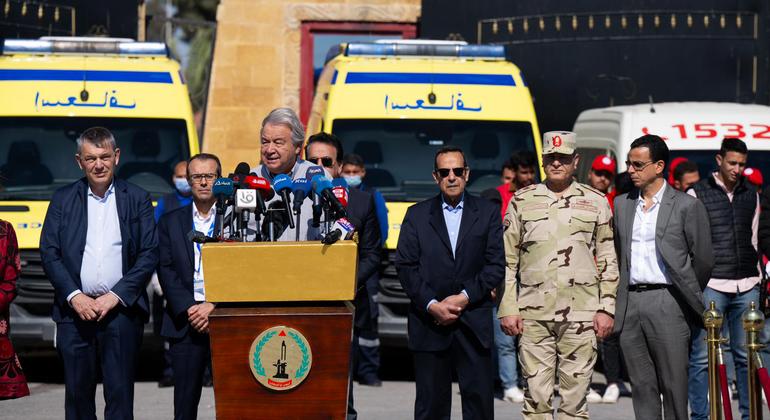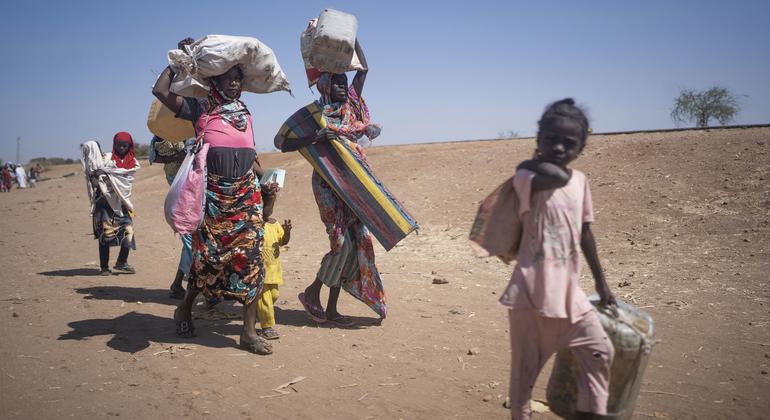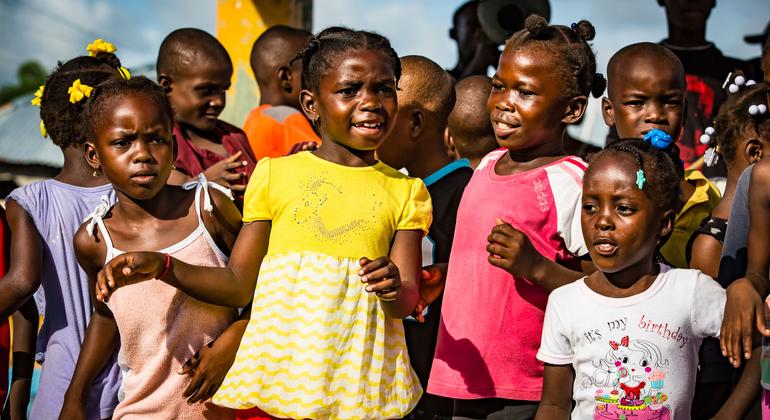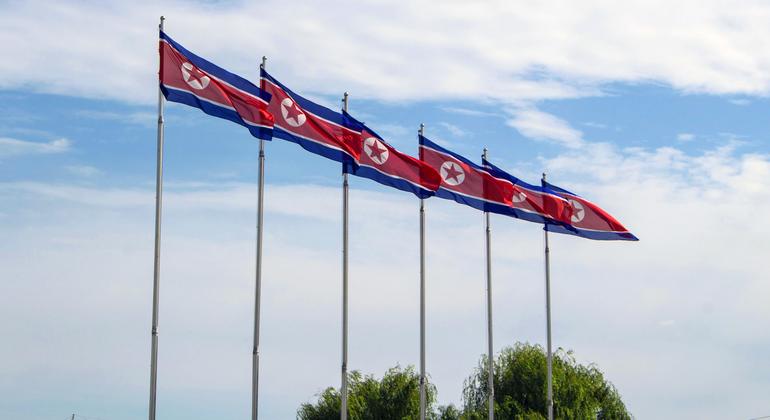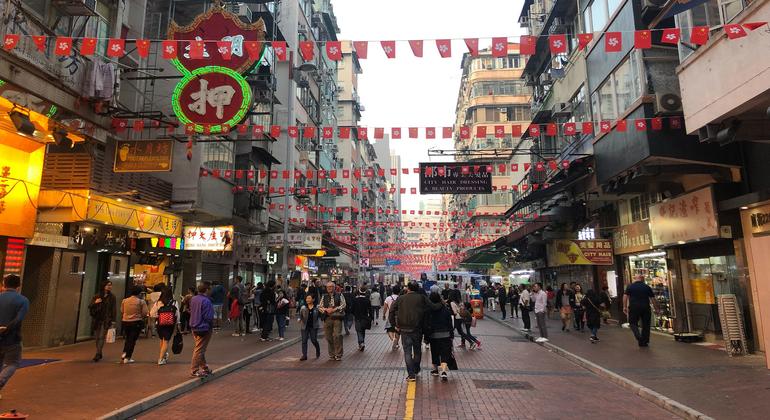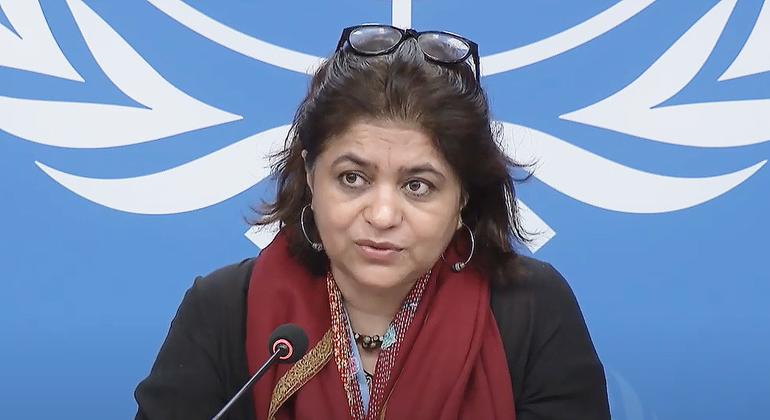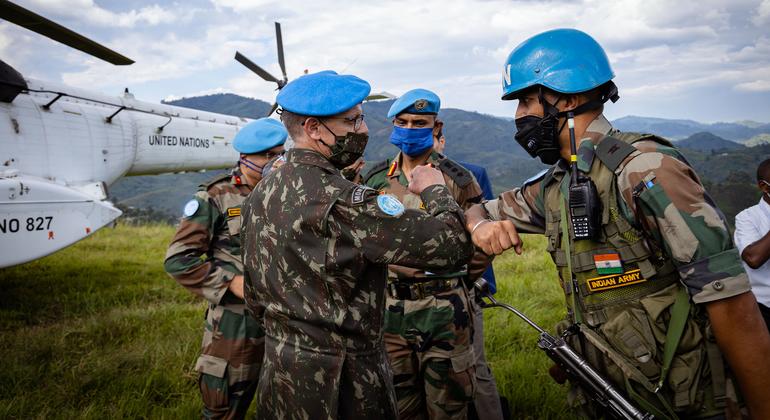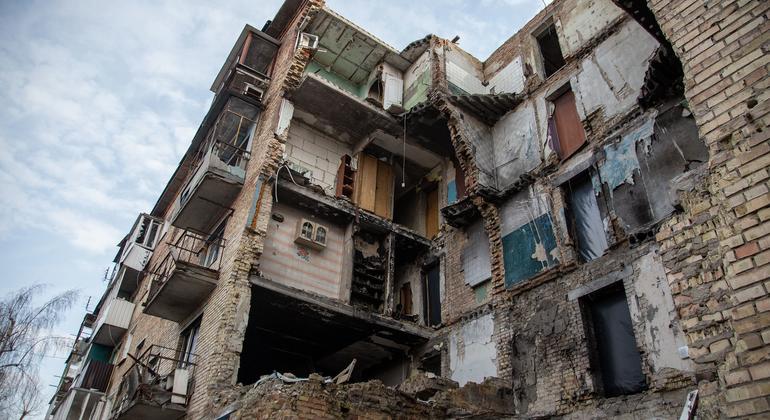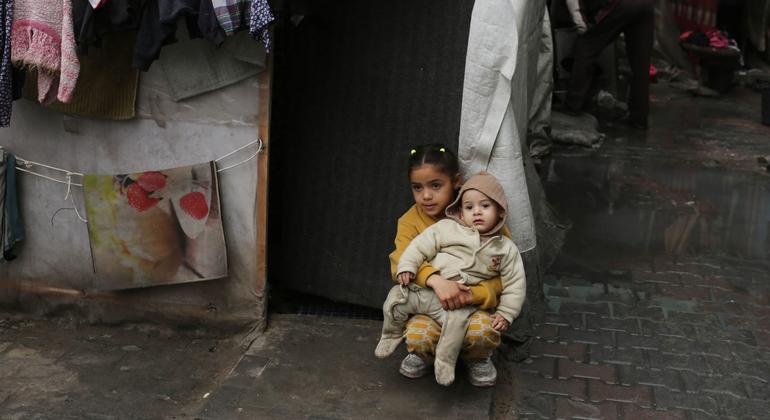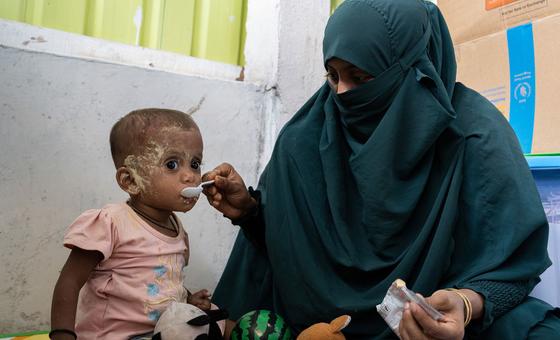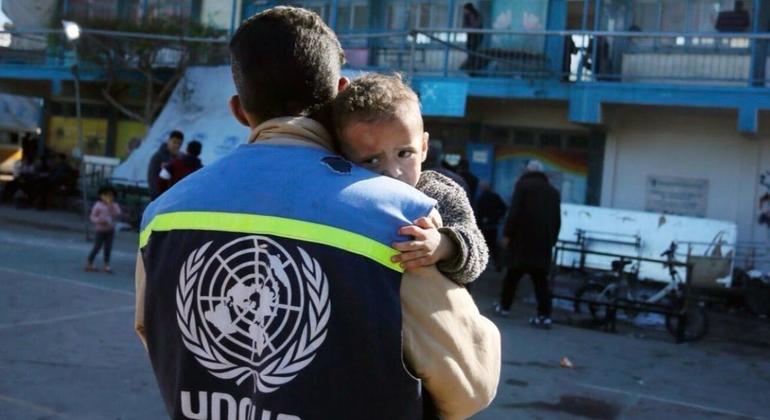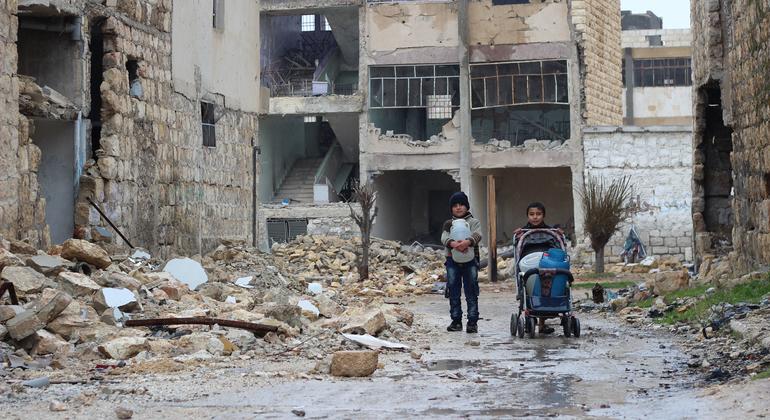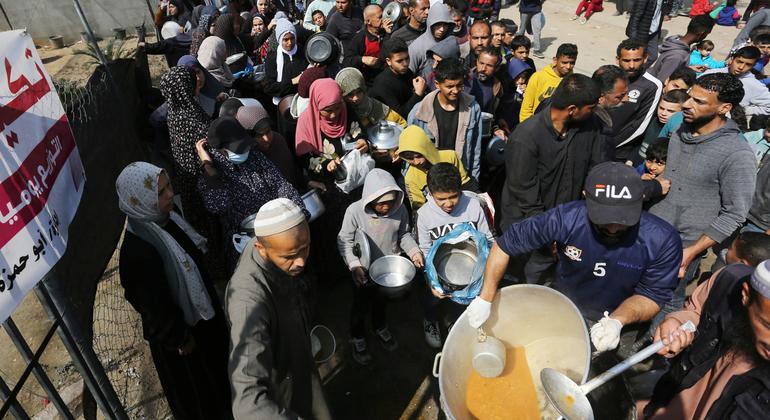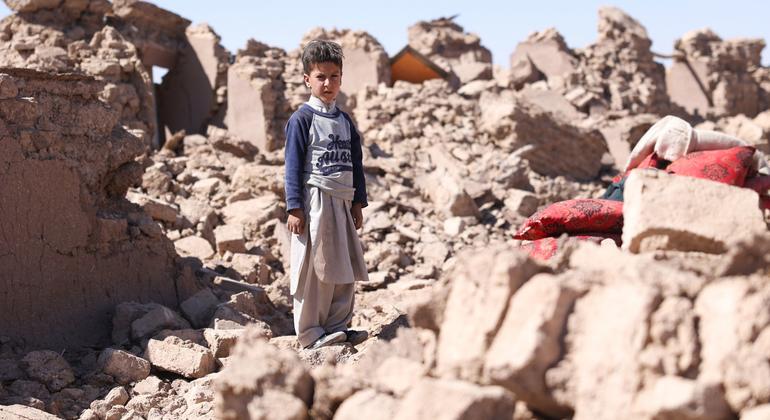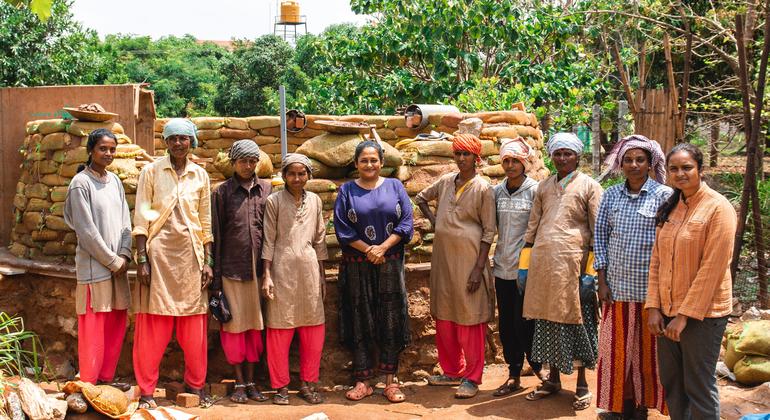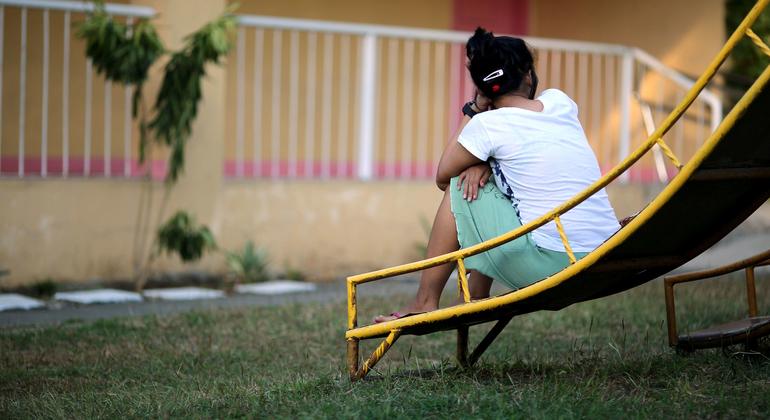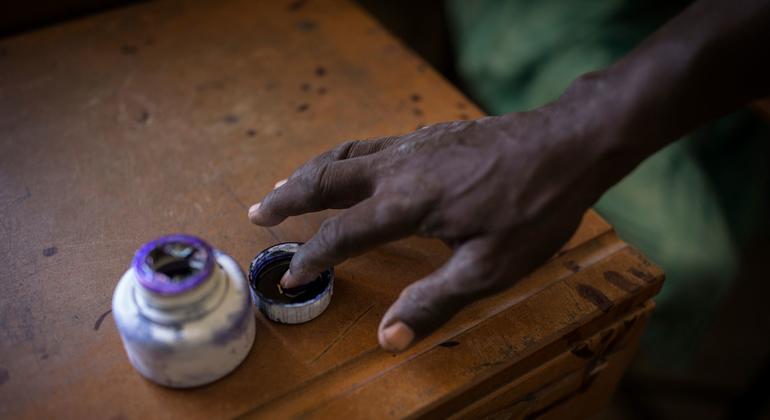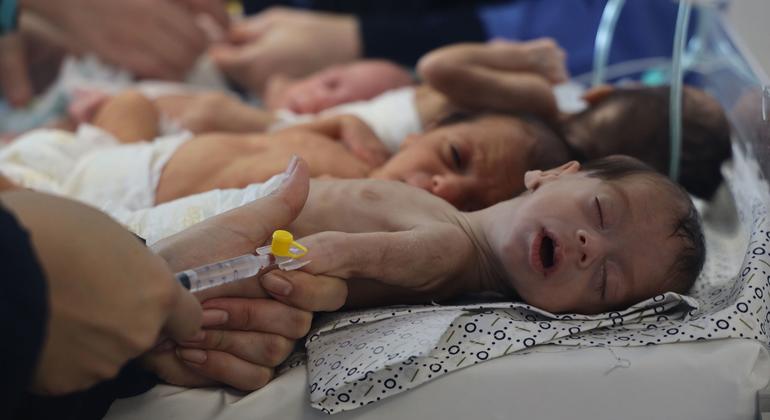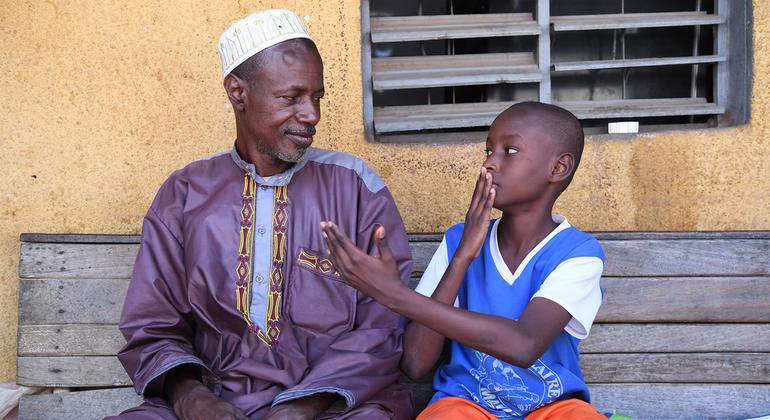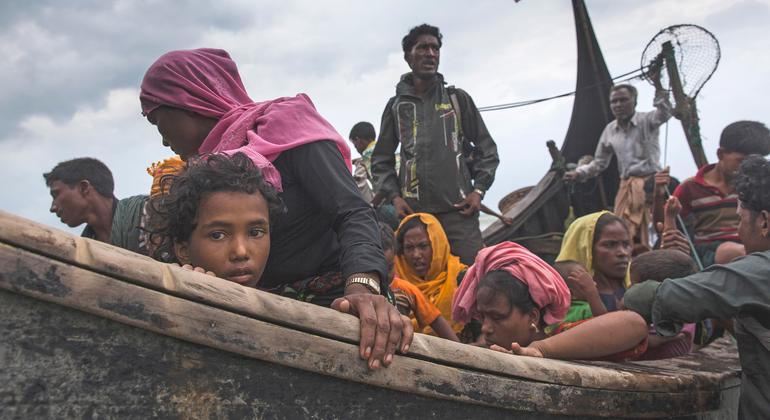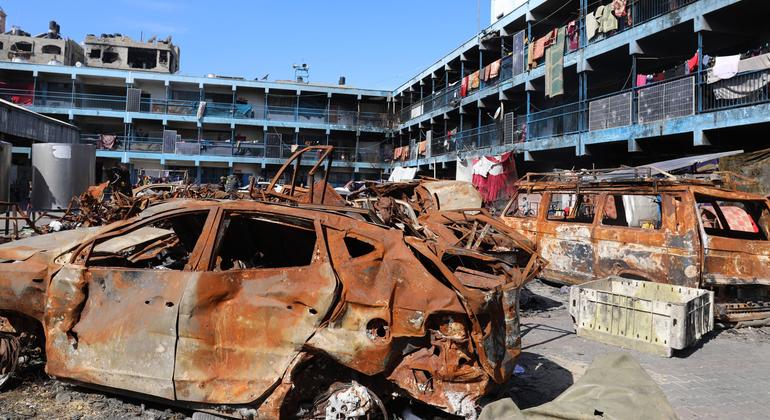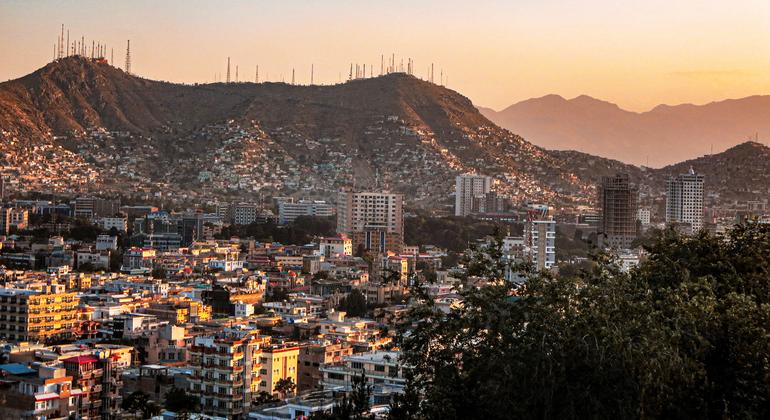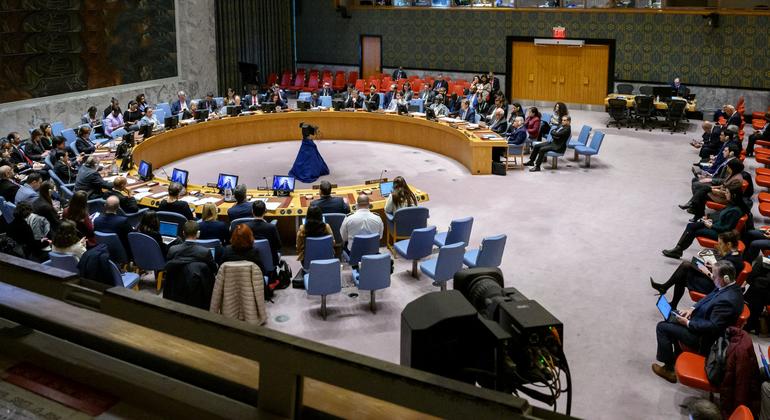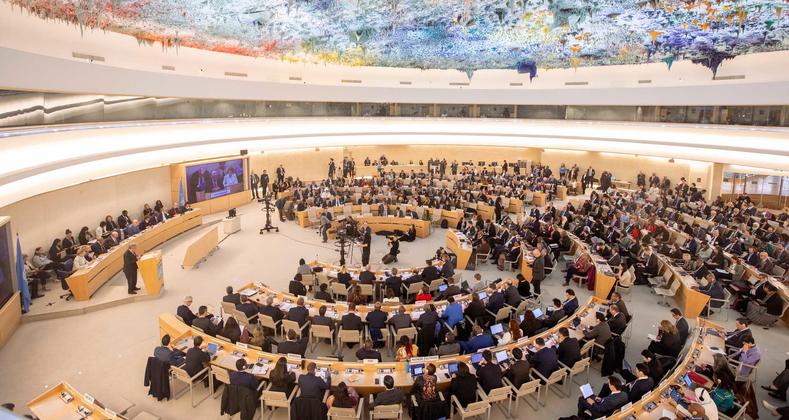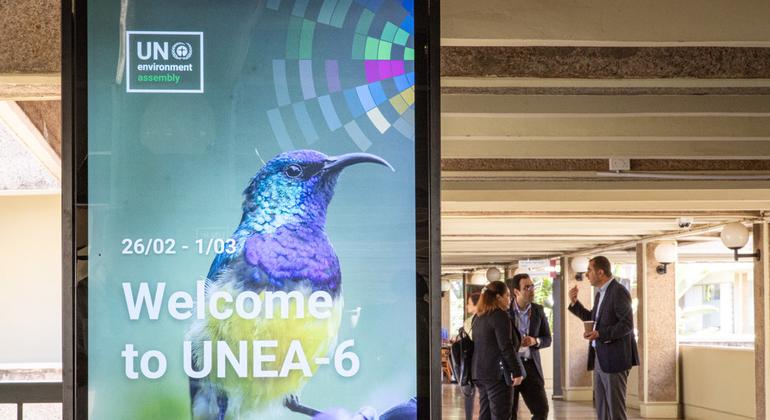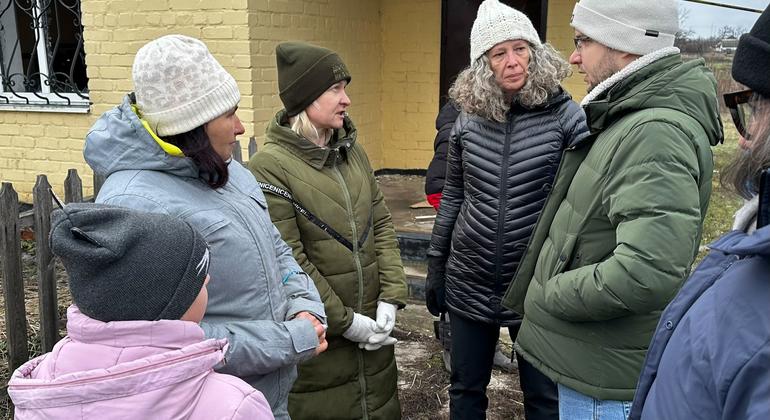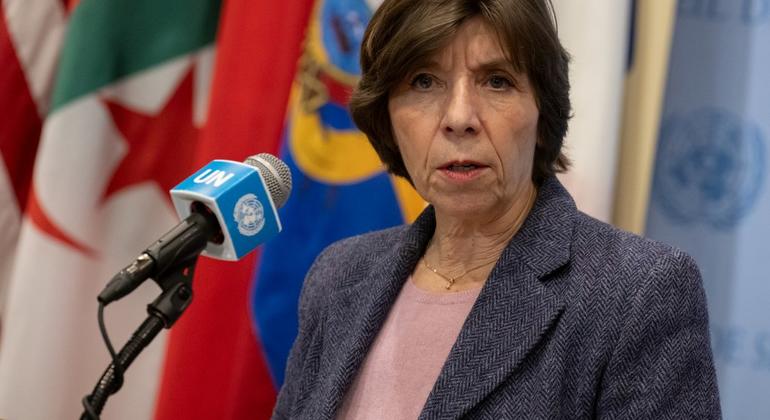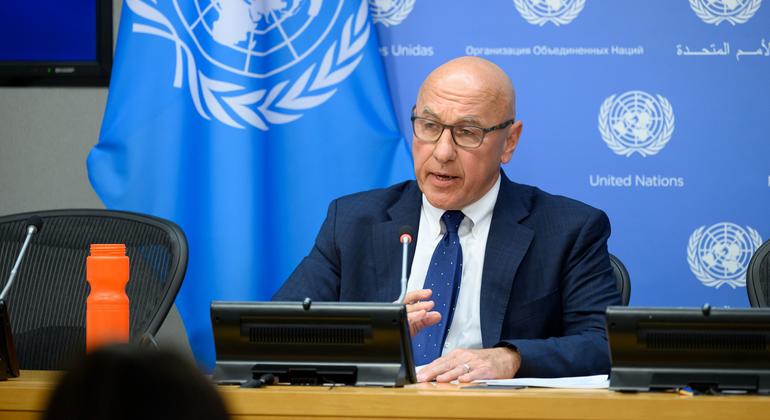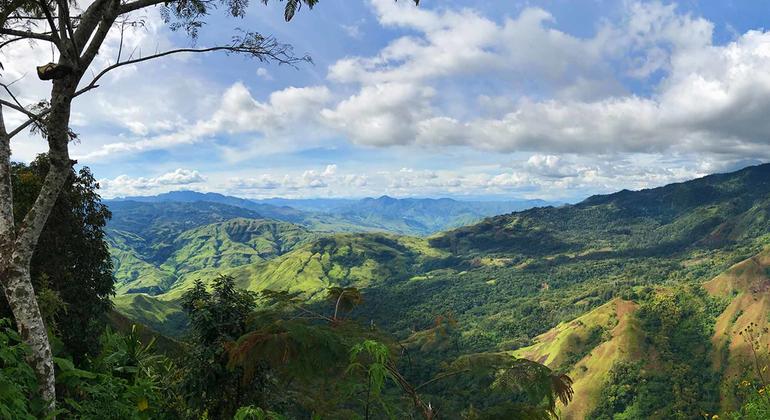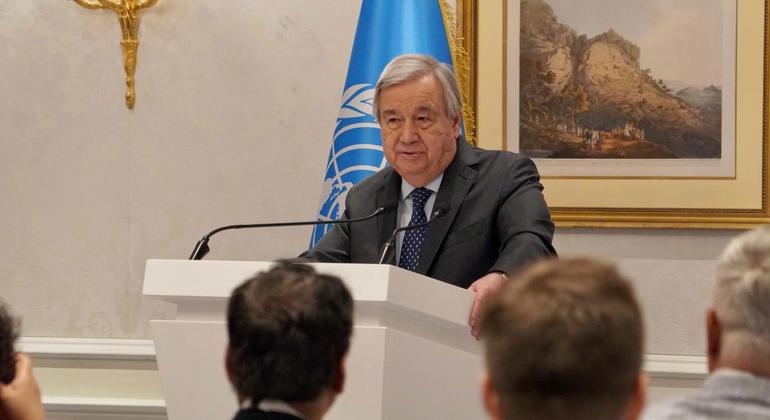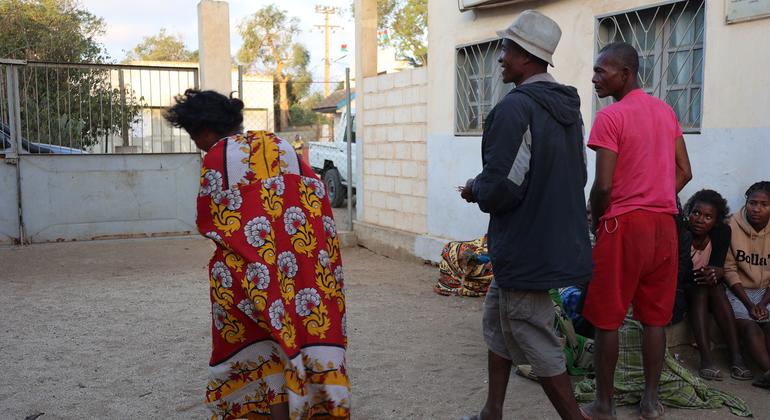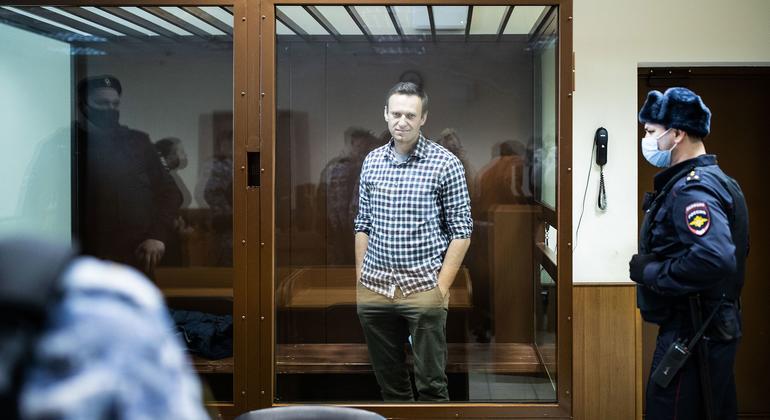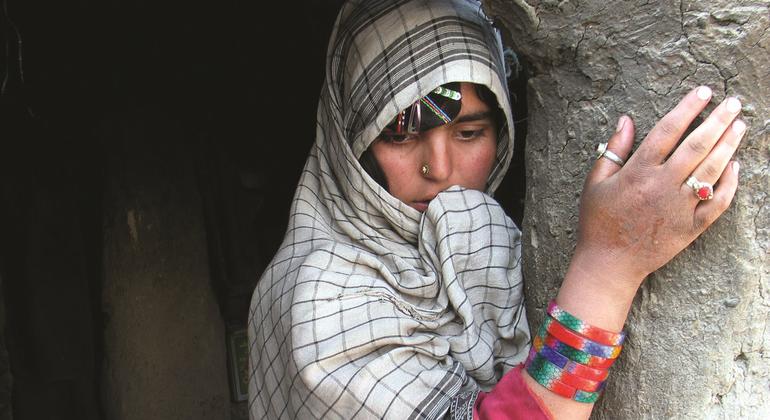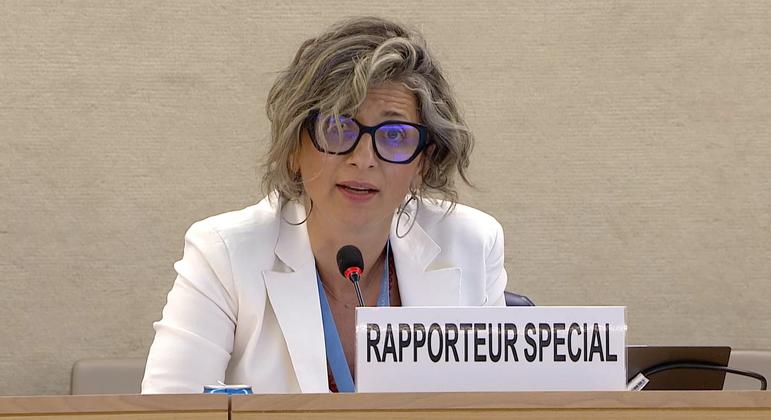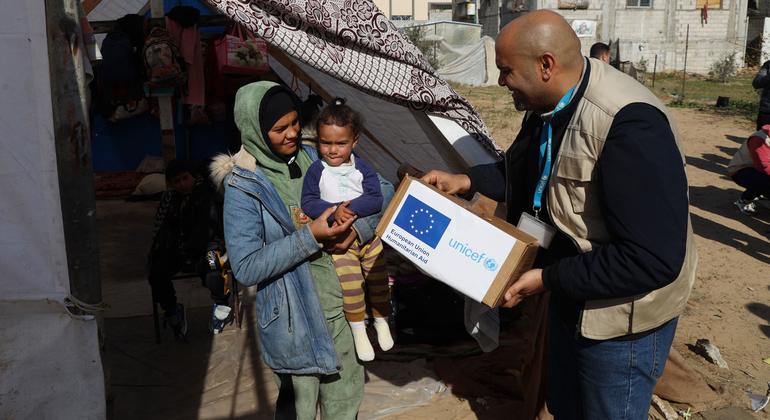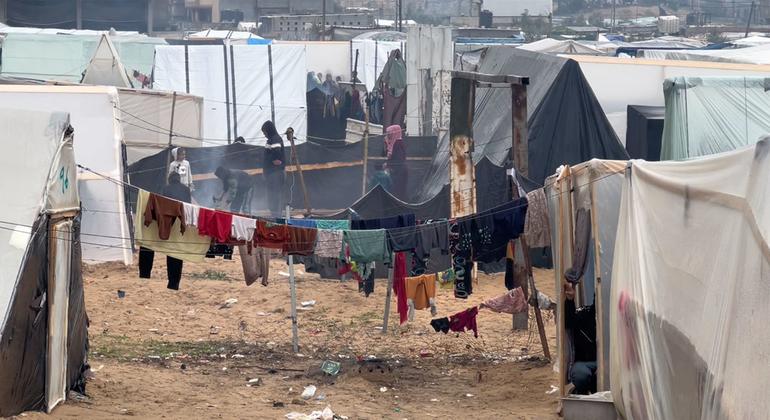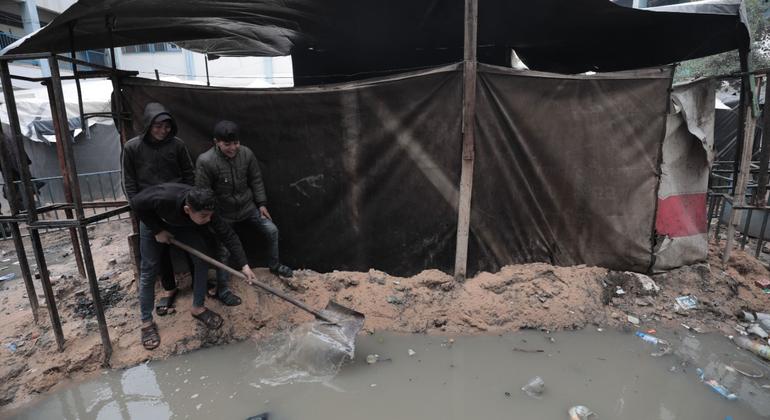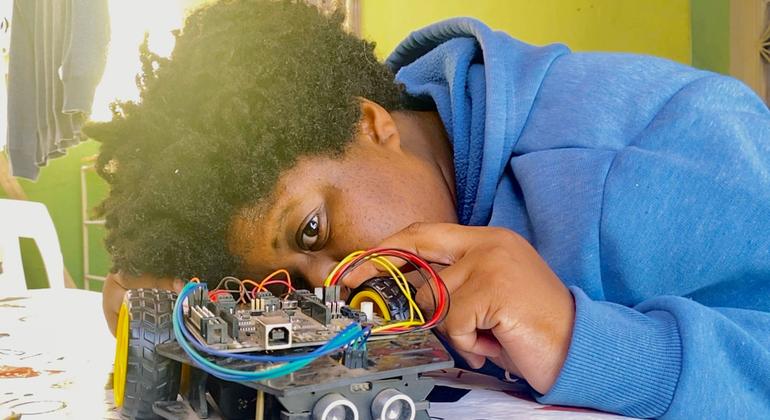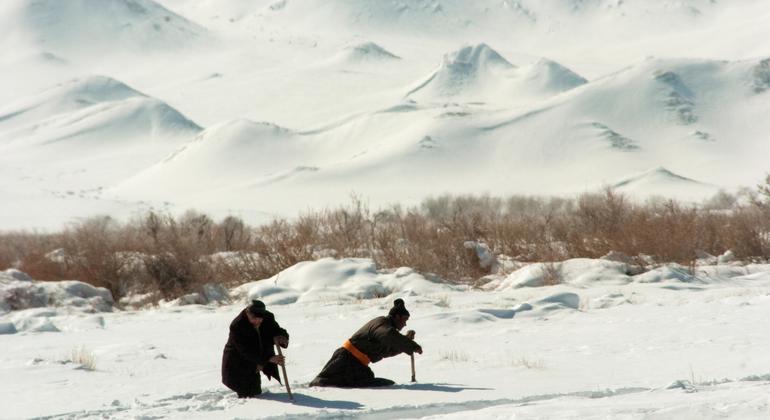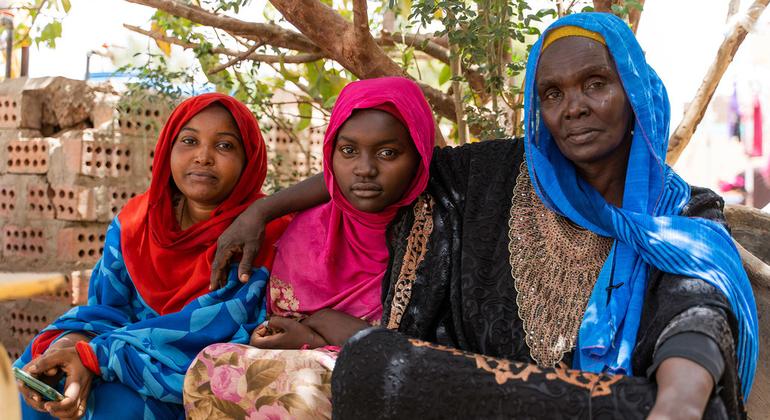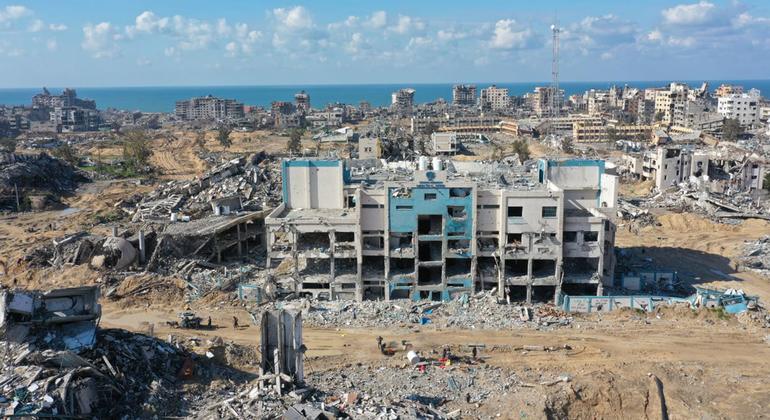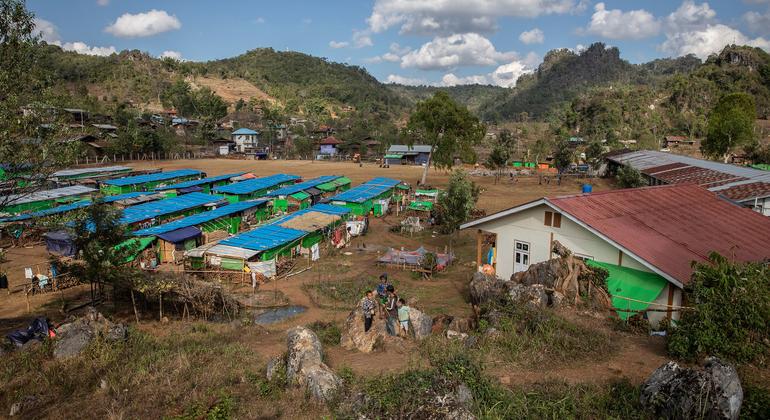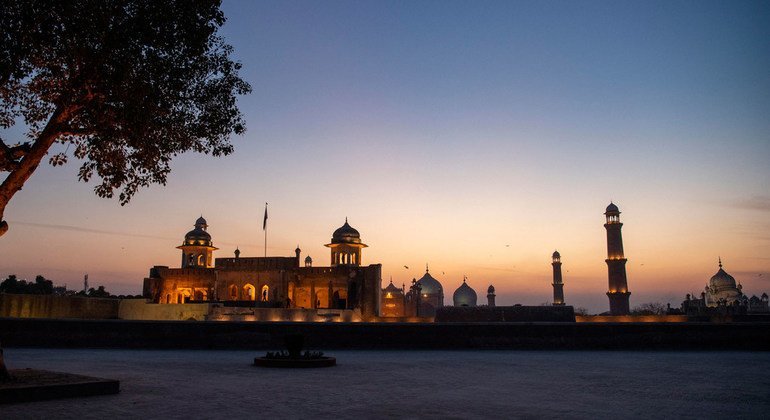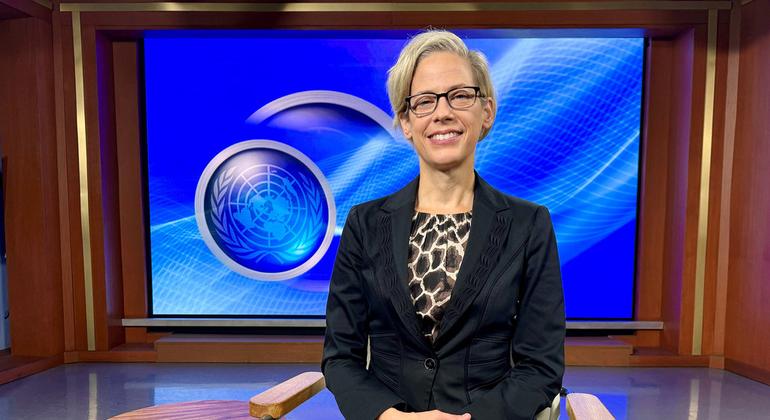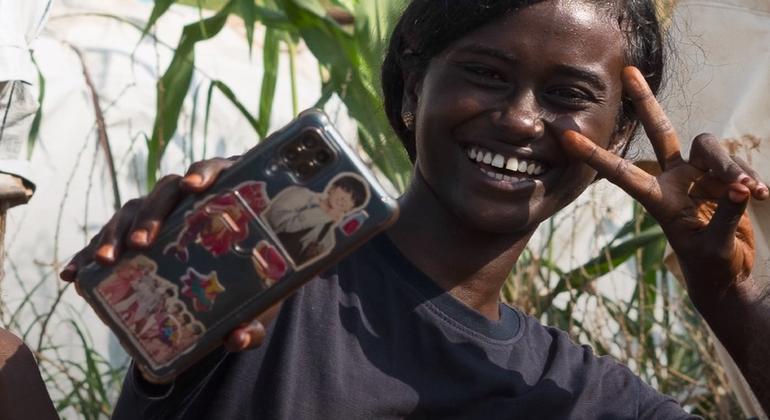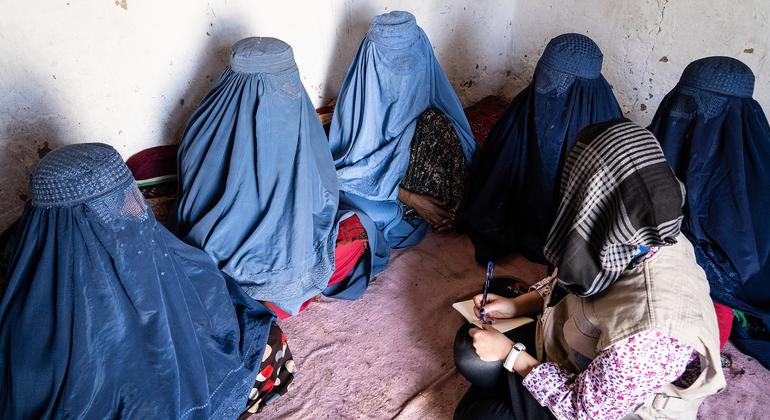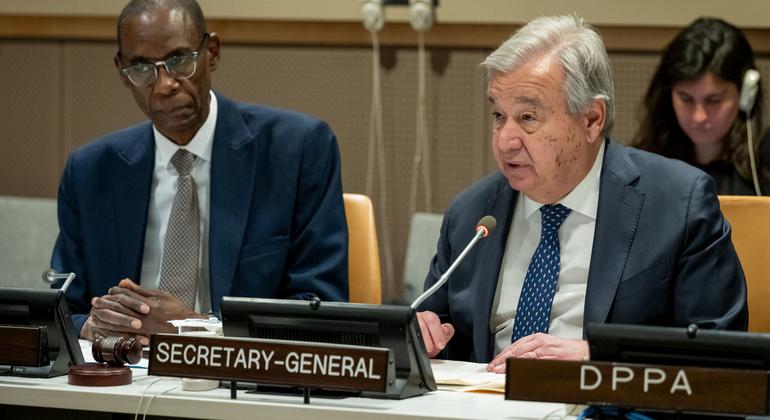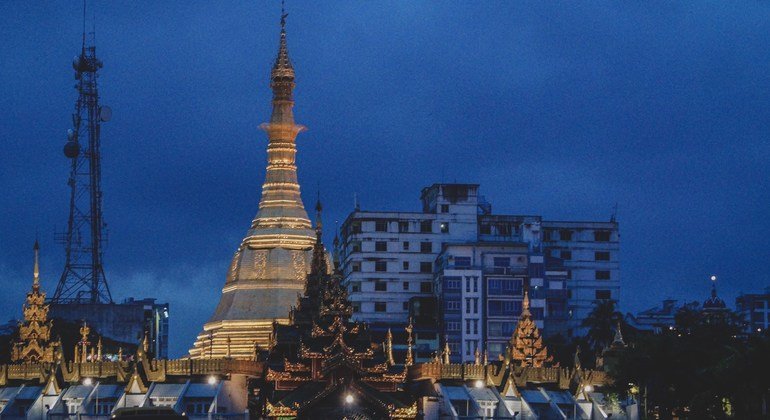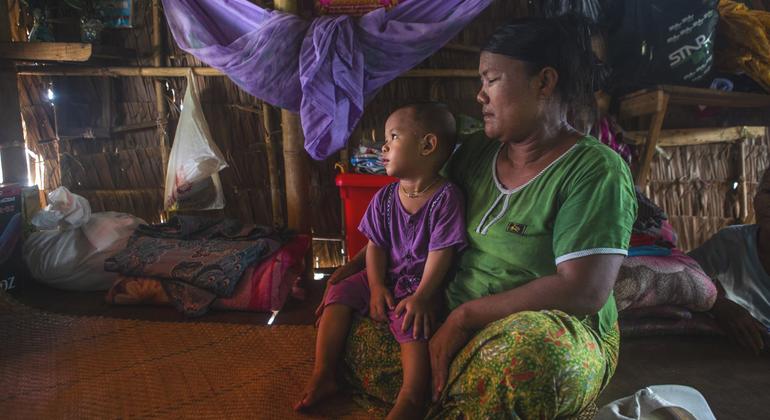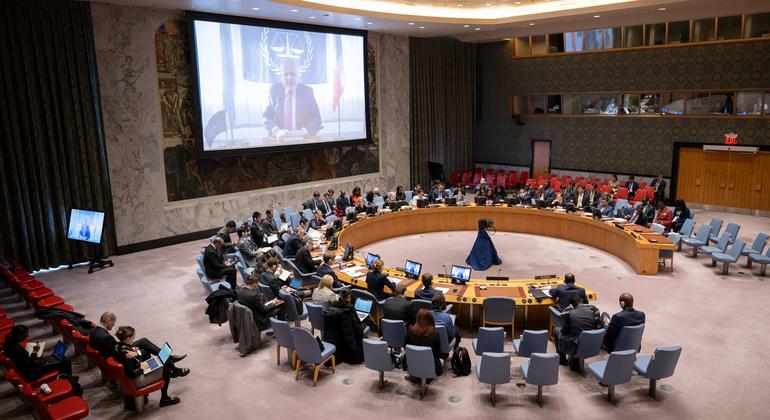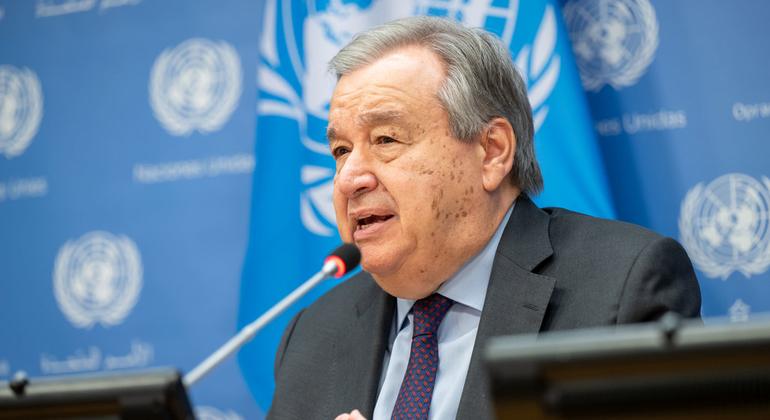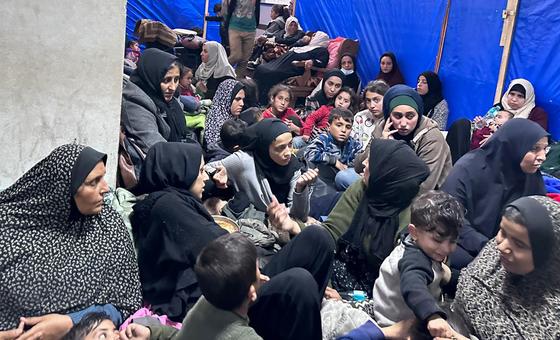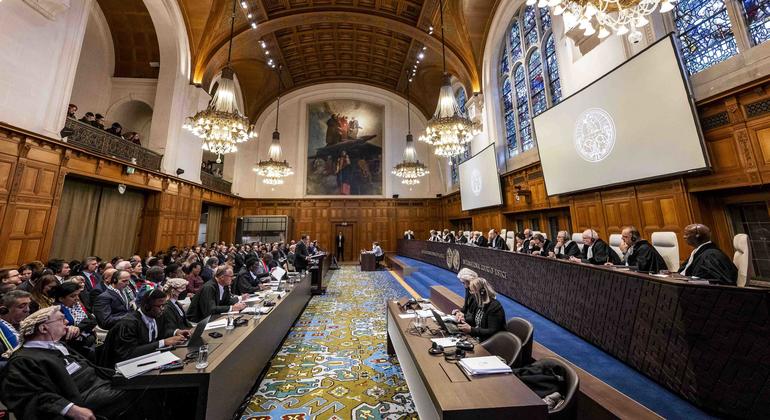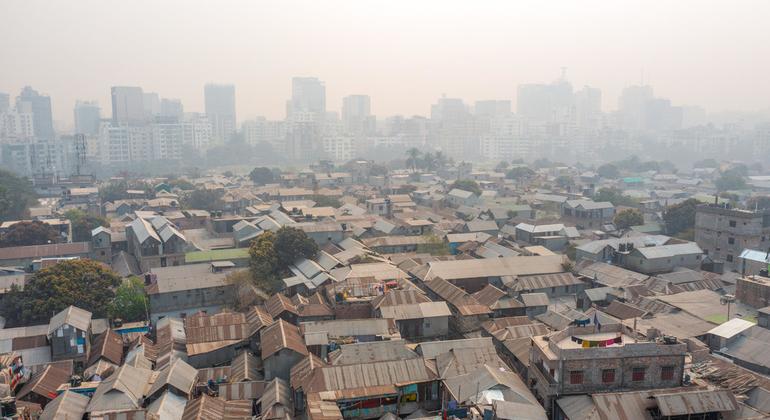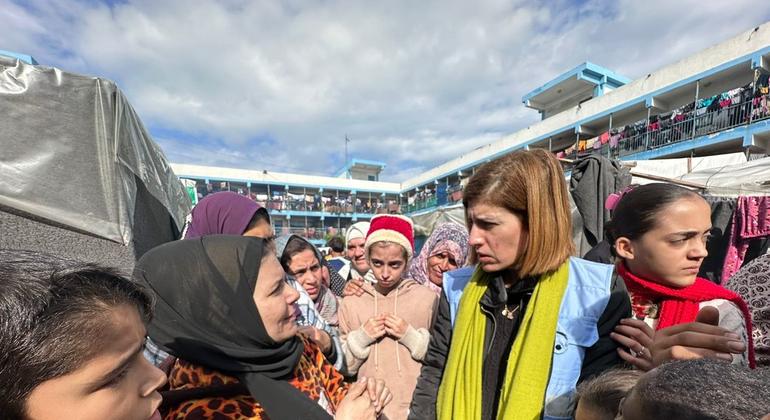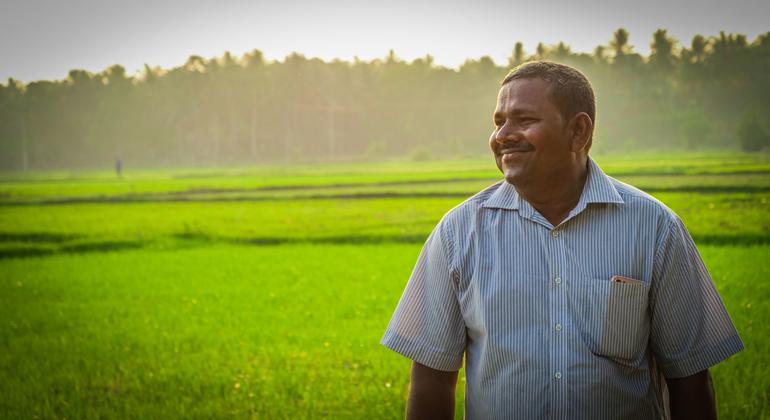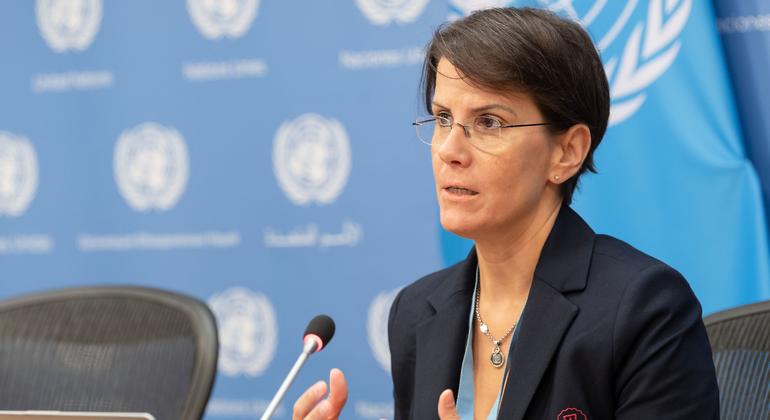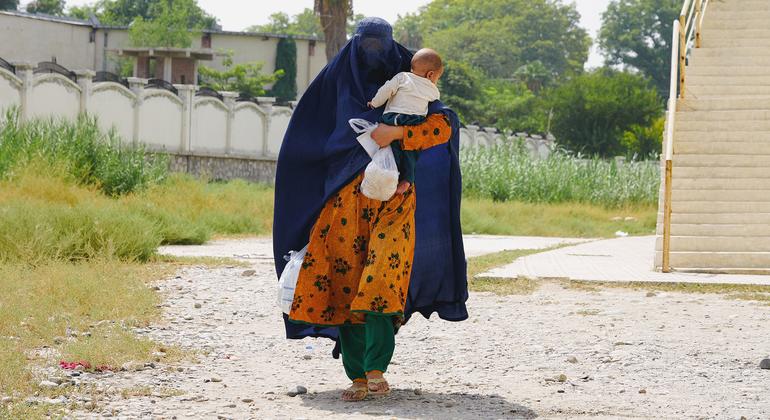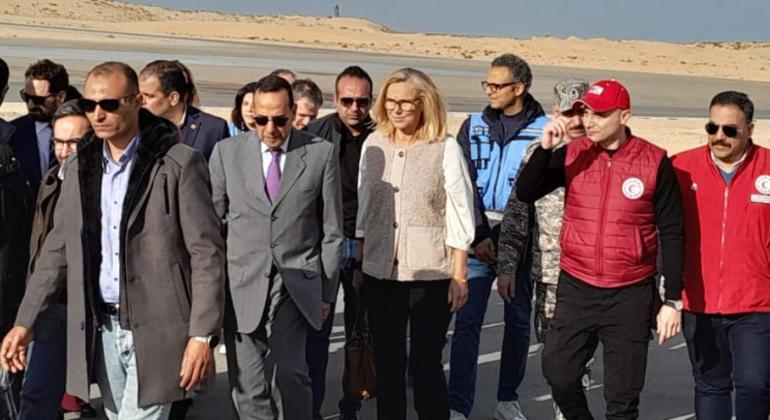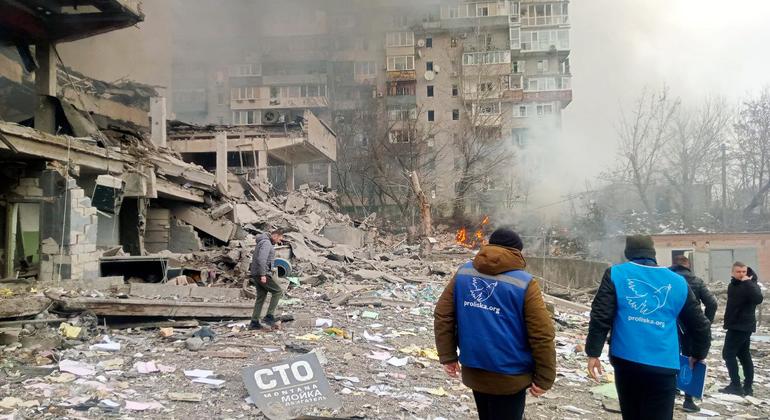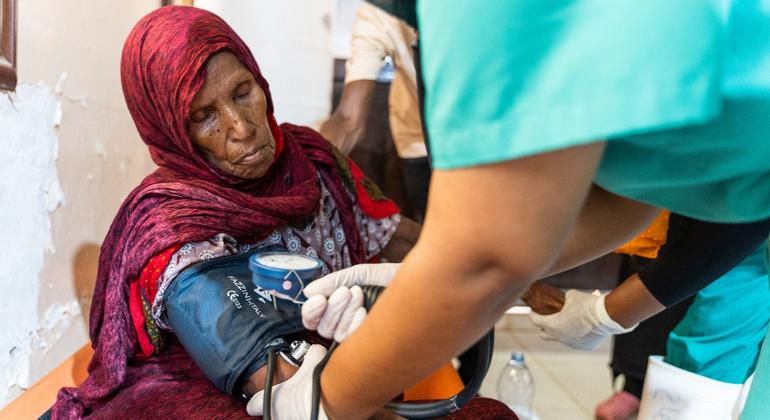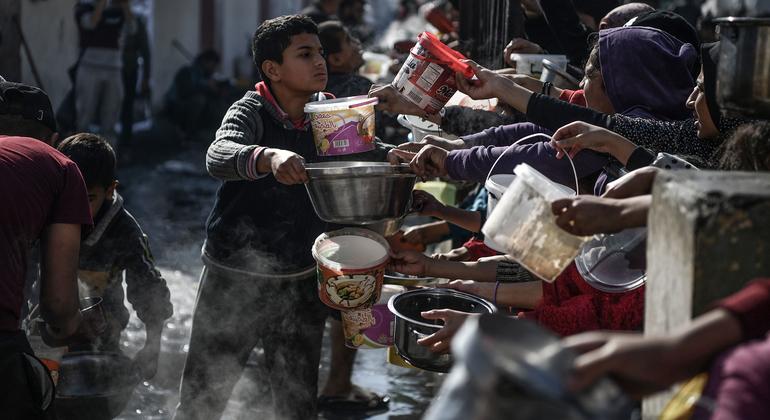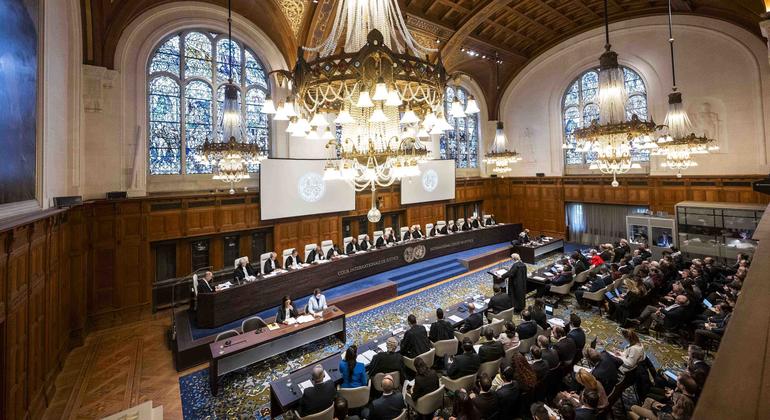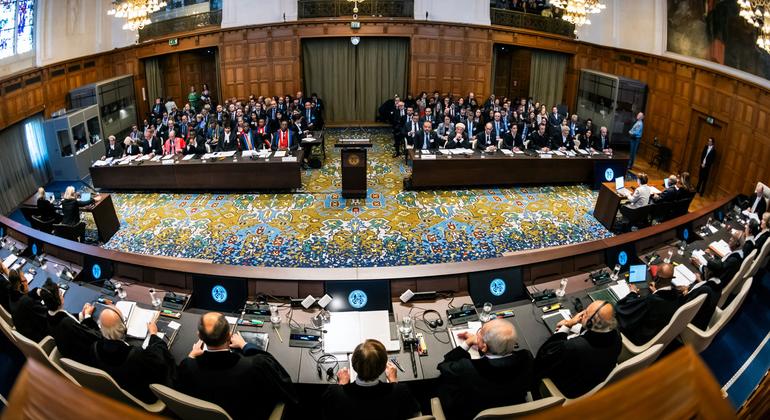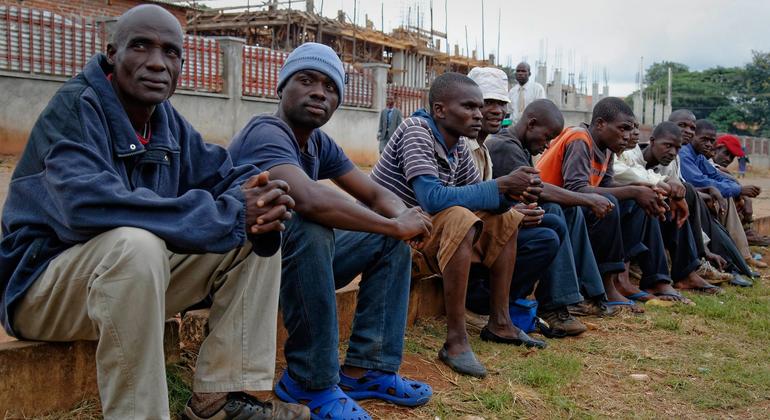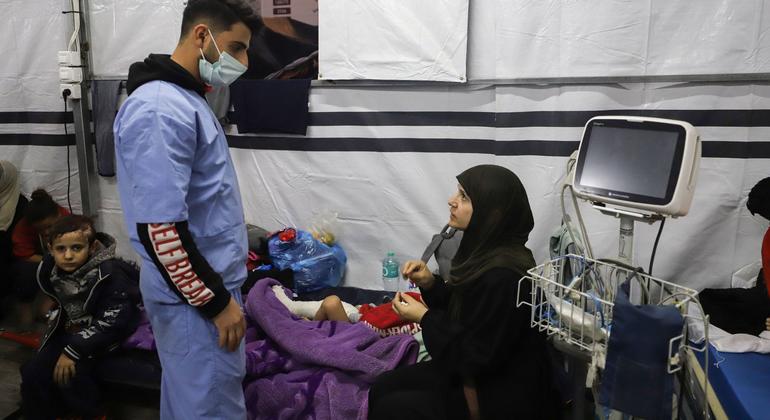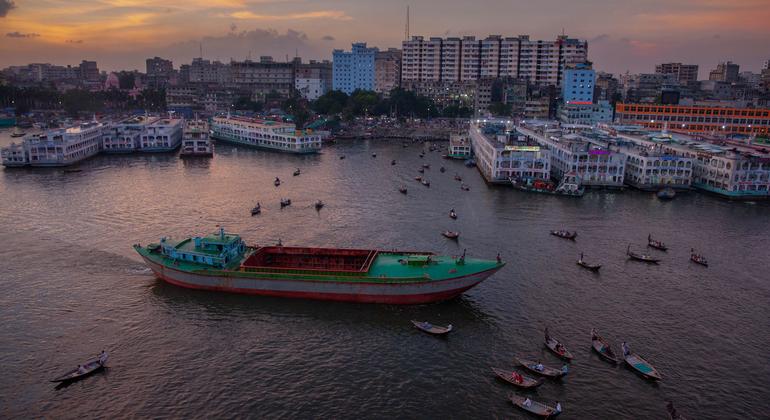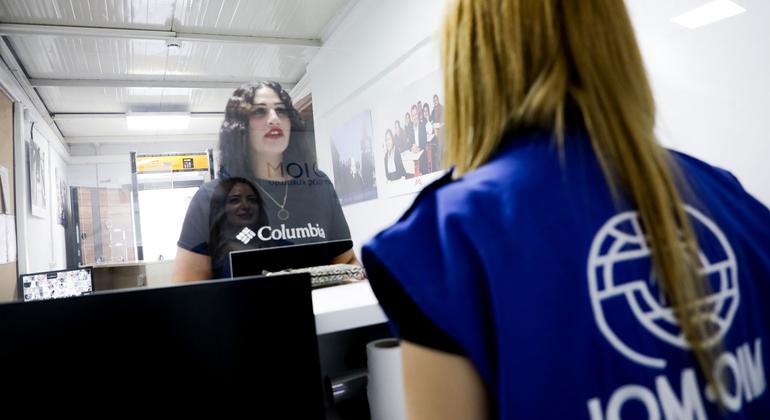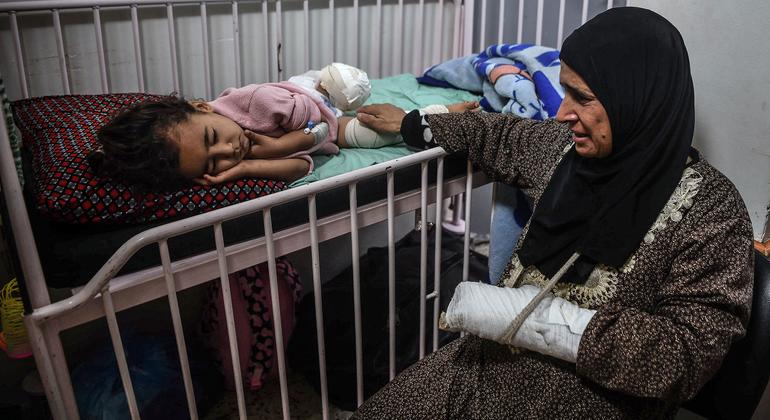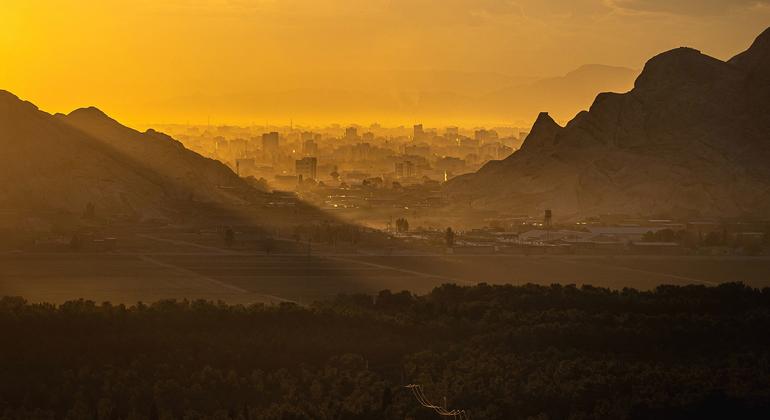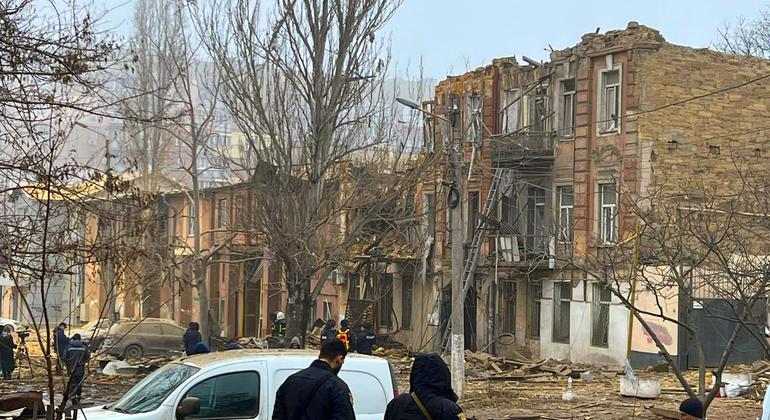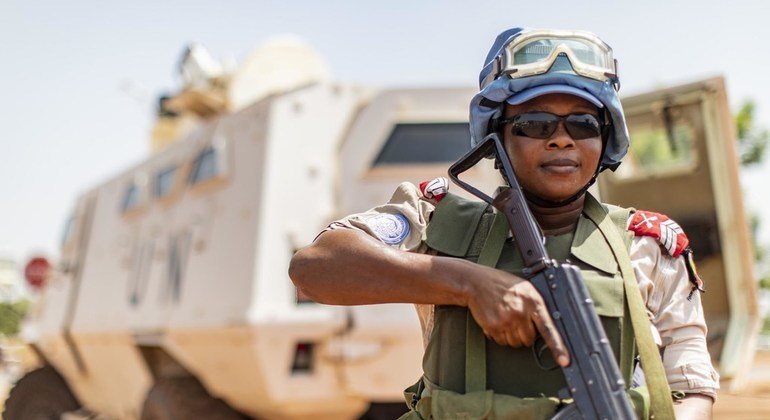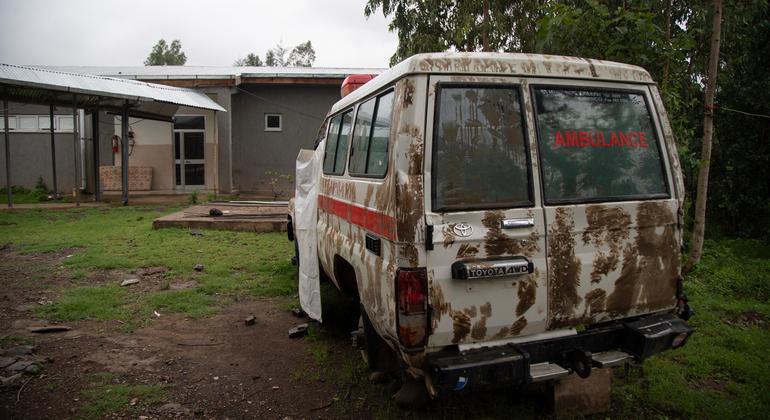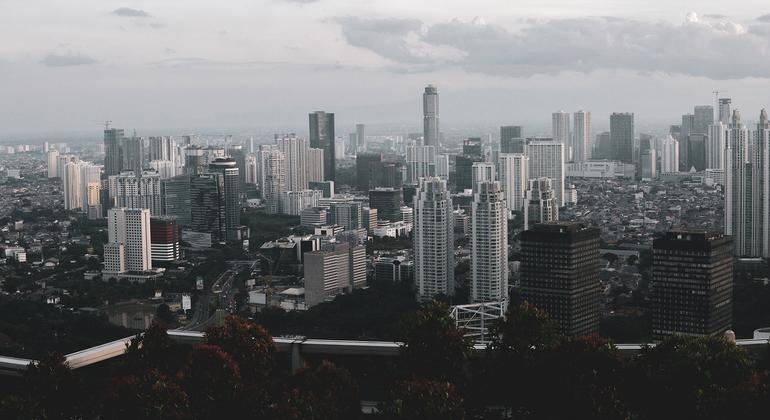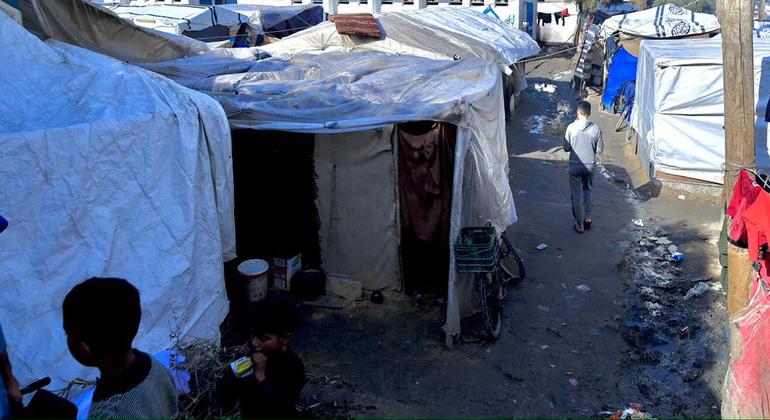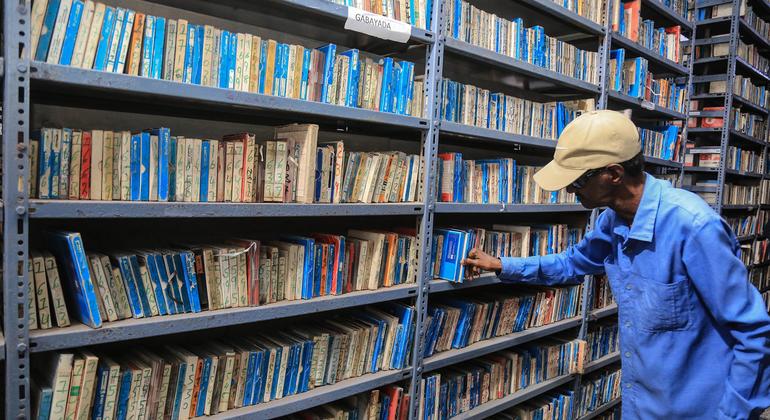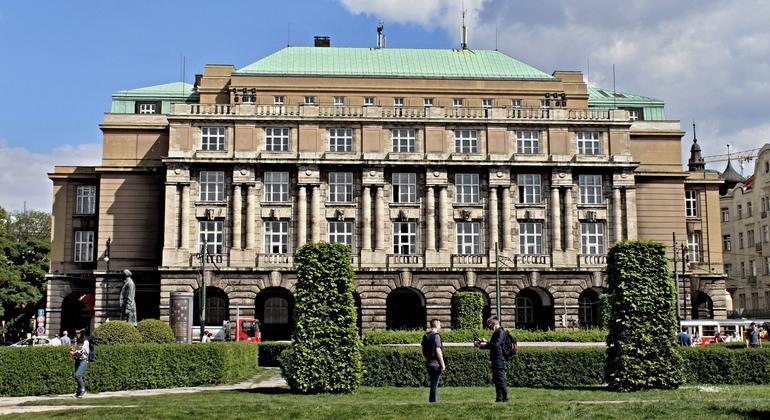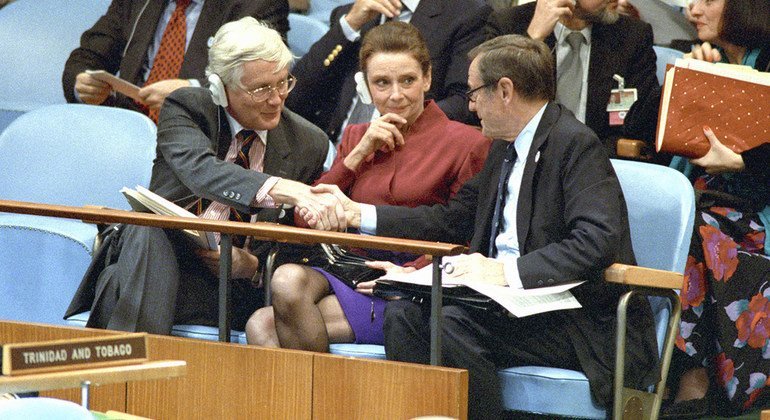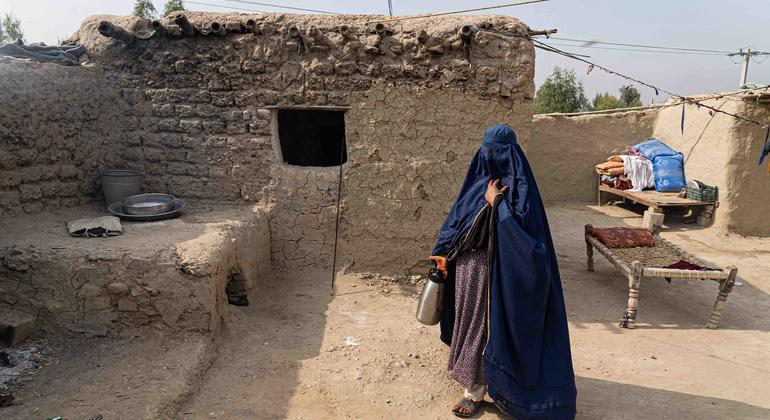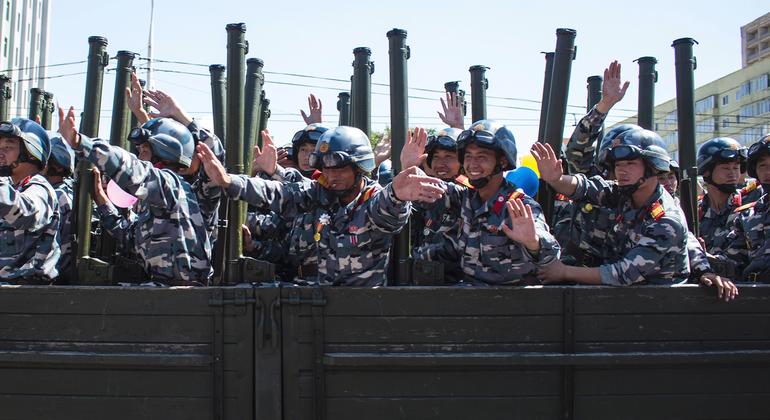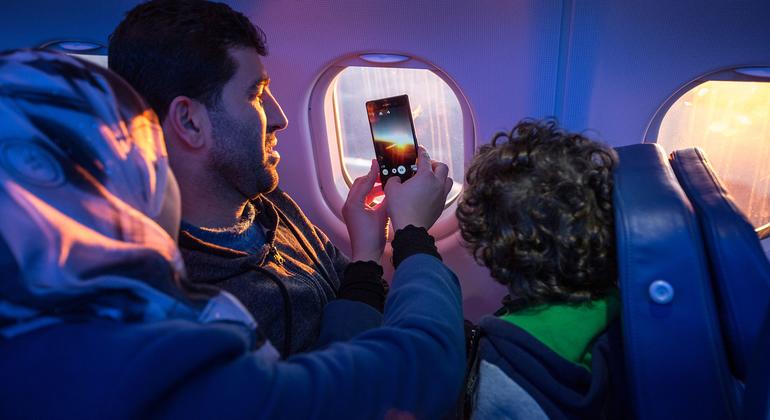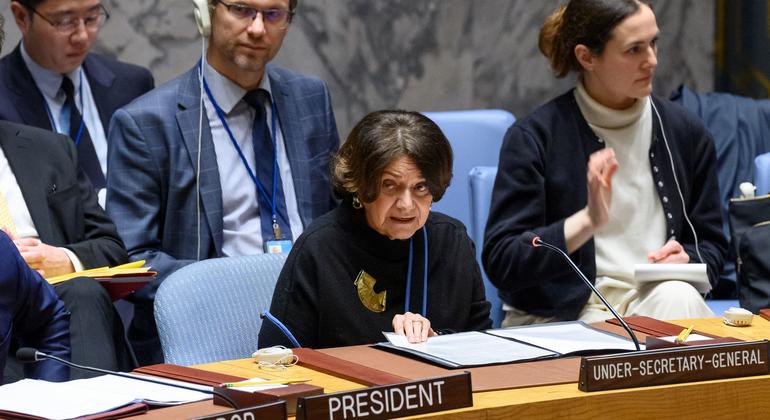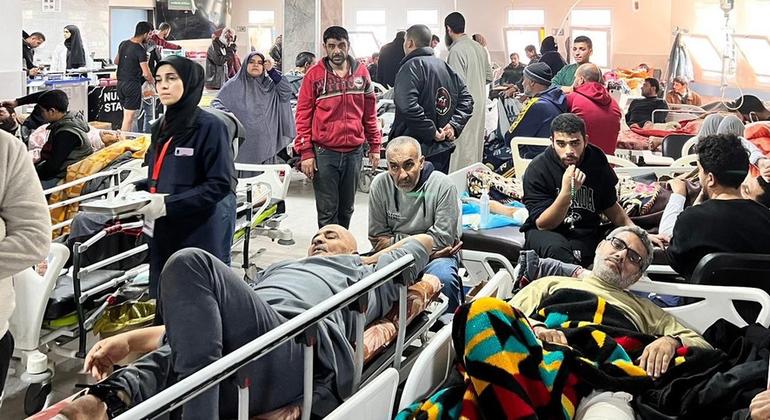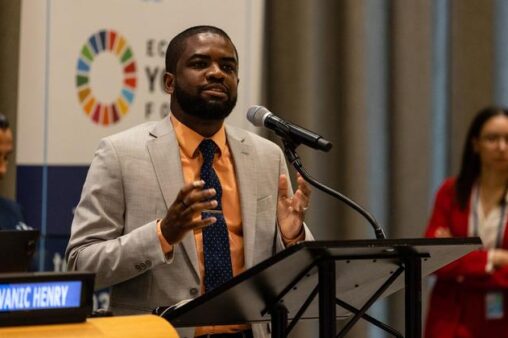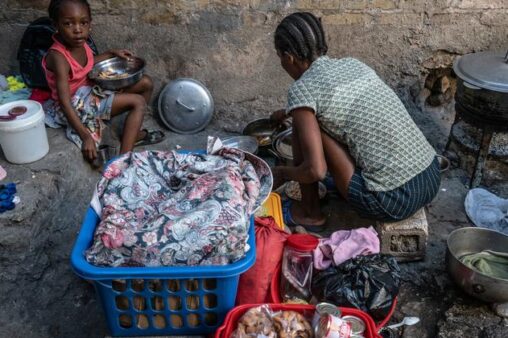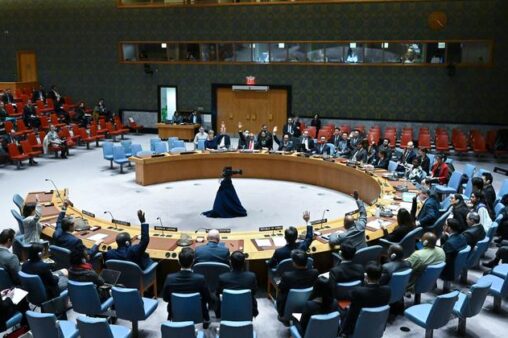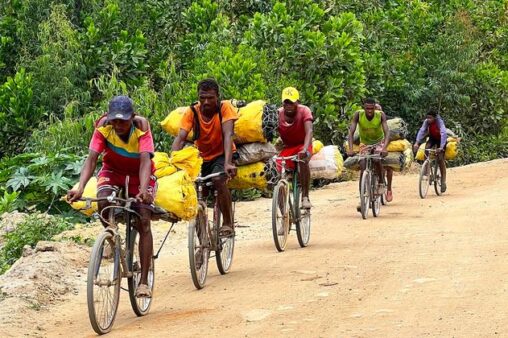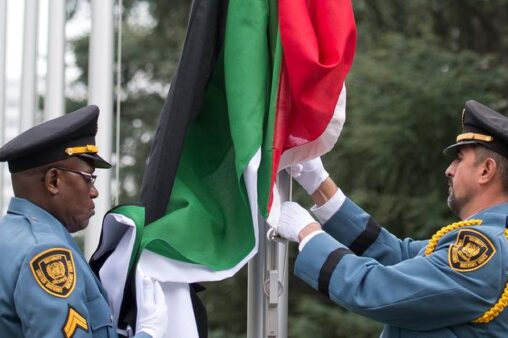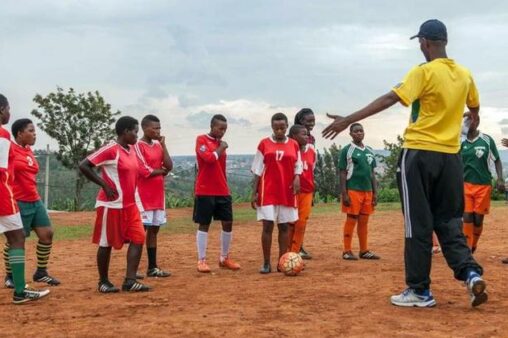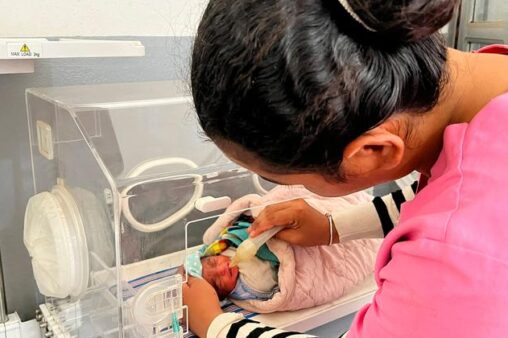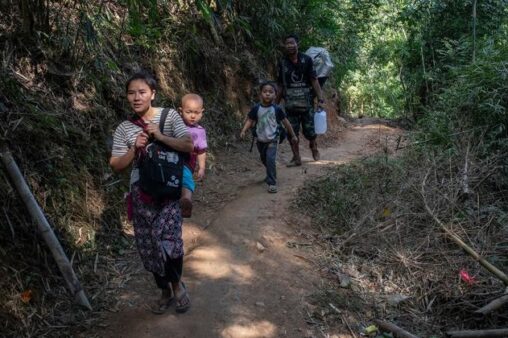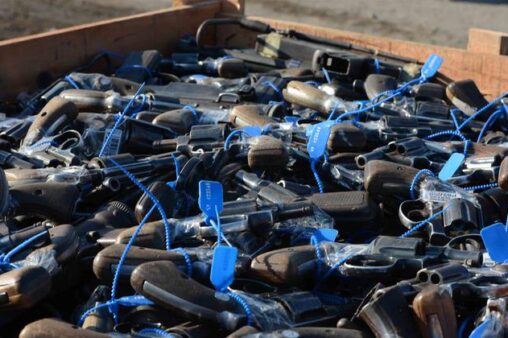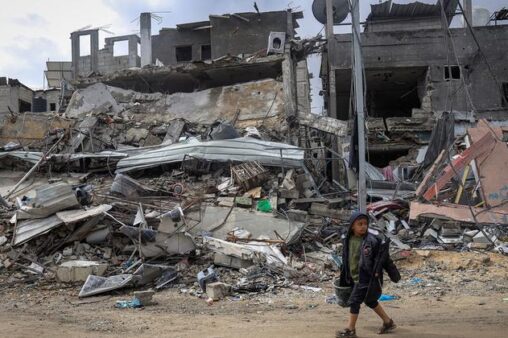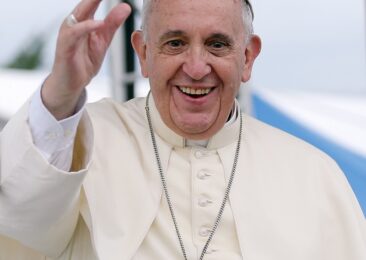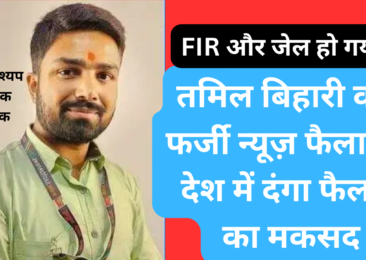World News in Brief: Syria violence intensifying, heavy weapons threat in Myanmar, justice call for Thai lawyer
The UN Syria Commission of Inquiry, which reports to the Human Rights Council, warned that fighting escalated on 5 October last year, when consecutive explosions at a military academy graduation ceremony in government-controlled Homs killed at least 63 people, including 37 civilians.
The Syrian Government and Russian forces “responded with bombardments” that struck at least 2,300 sites in opposition-controlled areas in the space of three weeks, “killing and injuring hundreds of civilians”, the investigators said.
Locations hit included “well-known and visible hospitals, schools, markets and camps for internally displaced persons” which may amount to war crimes, the said in a statement.
90 per cent live in poverty
From the Commission of Inquiry, chairperson Paulo Pinheiro insisted that the Syrian people “cannot sustain” any more fighting, after 13 years of war which have left 16.7 million inside the country in need of humanitarian assistance – the largest number of people in need since the start of the crisis.
“More than 90 per cent now live in poverty, the economy is in freefall amid tightening sanctions, and increased lawlessness is fuelling predatory practices and extortion by armed forces and militia,” Mr. Pinheiro explained.
Syria has used cluster munitions in densely populated areas, “continuing devastating and unlawful patterns that we have documented in the past,” said Commissioner Hanny Megally.
“The October attacks resulted in some 120,000 people in fleeing, many of them previously displaced several times, including by the devastating earthquakes last February.”
Mr. Megally said it should be no surprise that the number of Syrians seeking asylum in Europe last October reached the highest level in seven years, with Syria remaining the world’s largest displacement crisis.
Since the start of the Gaza war, tensions have increased between some of the six foreign armies active in Syria, commissioners said, notably Israel, Iran and the US – all raising concerns of a wider conflict.
Meanwhile, in northeast Syria, Turkish forces have accelerated operations against Kurdish-led Syrian Democratic Forces (SDF) in retaliation for an attack claimed by the Kurdistan Workers’ Party (PKK) in Ankara in October, the Commission said.
Turkish aerial attacks on power plants deprived nearly one million people of water and electricity for weeks, in violation of international humanitarian law.
The Commission’s report is due to be presented to the Human Rights Council on Monday 18 March.
Myanmar: Deep concern over use of heavy weapons in residential areas
UN humanitarians are deeply concerned about the “indiscriminate use” of heavy weapons in residential areas of Myanmar’s Rakhine state during fighting between forces loyal to the ruling junta and the rebel Arakan Army, the UN Spokesperson said on Monday.

Men traveling by motorbike through cyclone-damaged Thae Chaung IDP camp. Sittwe, Rakhine.
Stéphane Dujarric said that the use of artillery was posing grave risks to civilians and costing civilian lives, as fighting intensifies between a raft of rebel groups across the country and the national army.
“On Saturday, a stray artillery shell landed in a residential area in the state capital Sittwe, killing at least eight Rohingya civilians and injuring 12 others, including five children”, said the UN Spokesperson.
It’s now more than three years since the military coup which toppled the democratically-elected Government and amid a violent crackdown on any opposition and protests, more than 4,600 have been killed including hundreds of women and children, with the death toll likely much higher.
Rakhine is home to the mostly Muslim Rohingya minority, hundreds of thousands of whom have fled across the border into Bangladesh following brutal military repression in 2017.
“This is the second time in two weeks that a stray shell has killed people in Sittwe.
The situation has prompted a surge in displacement across the state. More than 300,000 people are now displaced, Mr. Dujarric added.
He said the tactics used by the parties to the conflict are harming civilians and undermining humanitarians’ continued ability to deliver assistance to people in need.
“We remind all parties to the conflict of their obligations under international humanitarian law to protect civilians, including aid workers.”
Truth and justice call for disappeared Thai lawyer
It’s been a full 20 years since Thai lawyer and activist Somchai Neelapaijit went missing – high time that the authorities disclose what happened to him, top independent rights experts said on Monday.
The joint appeal led by the UN Working Group on Enforced or Involuntary Disappearances comes almost two decades to the day since Mr. Neelapaijit vanished.
His alleged enforced disappearance is believed to be related to his work as a lawyer defending Muslim minorities in southern Thailand.
No-one has been held accountable for his enforced disappearance but “truth, justice and redress” in the case of Mr. Neelapaijit must be achieved “without further delay”, the rights experts insisted.
They highlighted how the lawyer’s wife, Angkhana, had faced threats and reprisals in her search for justice, but that she had refused to give up her quest – even becoming the first Asian women to join the UN Working Group on Enforced or Involuntary Disappearances.


